




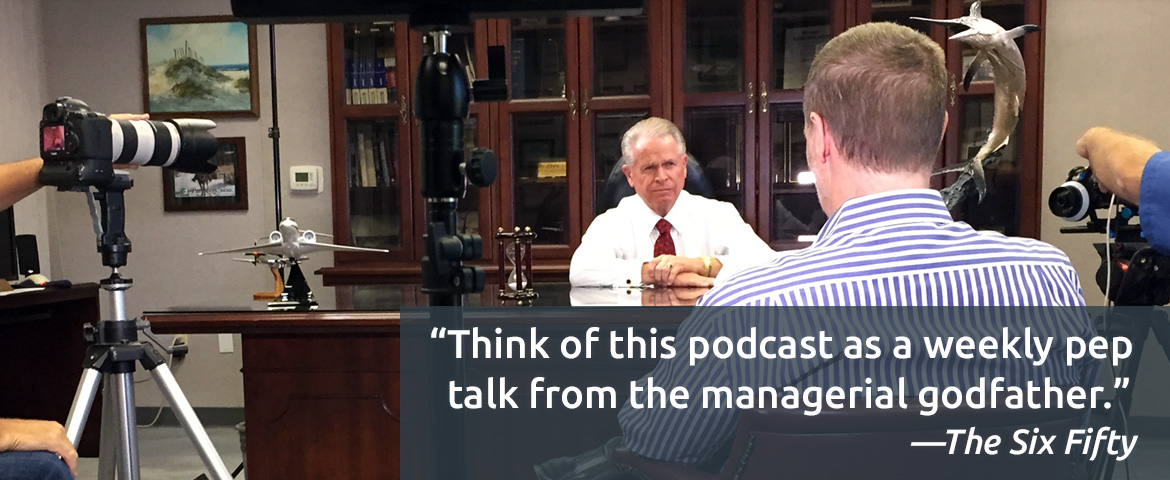
Tough Things First Podcast
The Tough Things First podcast is where you receive short bursts of Ray Zinn’s leadership, executive and entrepreneur’s wisdom. Tough Things First podcasts are typically five minutes long, giving you one important concept to ponder for the rest of the day.
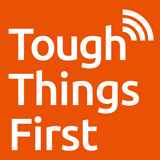
Subscribe to the podcast via:
iTunes | Spotify | Google Podcasts | Stitcher | Pocket Casts | TuneIn | RSS
- Jul2420240

Is College Worth the Cash?
Read moreThe question is what has more value, the price of an education or work experience? In this Tough Things First podcast, Ray Zinn says one has an edge over the other. He’ll explain why smart choices will help you navigate these life decisions.
Rob Artigo: I’m Rob Artigo, your guest host for this edition of the Tough Thanks First podcast. I’m a writer and former radio personality. Here with me once again is Ray Zinn, the longest serving CEO in Silicon Valley history. Hi Ray.
Ray Zinn: Hello Rob. Good to be with you again today.
Rob Artigo: Sure. I located a Pew research study that was recent, I think within the last week or two that it came out and it showed that only 22% of 5,200 college grads that were surveyed said that college is worth the cost if a student must take on debt. That’s only 22%. 47% said a four-year degree is worth it only if a student doesn’t have to take on loans and that leaves 29% of respondents who said college isn’t worth it no matter what. If you have debt or loans or whatever, it’s just not worth it.
- Jul102024

Circular Action is NOT Action
Read moreRunning in circles pushing a cart full of goals will lead to two things. Exhaustion and a cart full of unfulfilled goals. In this Tough Things First podcast, Ray Zinn explores the difference between action for action’s sake and action with purpose. (Watch the Video Podcast here.)
Rob Artigo: Rob Artigo here, once again your host for this edition of The Tough Things First podcast, a special edition of the Tough Things First podcast. If you are listening to this and you’d like to watch it on video, we have it on Ray’s YouTube channel. And the link is right next to the intro for this at toughthingsfirst.com, so it is available to you. We try to do at least once a month. And it’s a great opportunity to see what we look like because we’re very handsome gentlemen. I’m an entrepreneur in California. Also, you may remember me as a radio broadcaster. I was at KGO in San Francisco, Seattle, and also in Sacramento I was a journalist on the air.
And Ray, it’s always great to be back here at Tough Things First to do another podcast with you. Ready for one?
Ray Zinn: You bet. Thank you, Rob. Good to be with you again.
- Jul032024

Wages Have Consequences
Read moreGood or bad, a rise in wages results in reaction. The earner may first have more money, but prices follow and can wipe-out the gains. In this Tough Things First reality check, Ray Zinn explores a game that is less than zero sum when it’s forced.
Rob Artigo: We once talked about kiosks. What we were talking about was technology. I think we were talking about robots being used in restaurants and we talked about kiosks. And I was adamant, I felt like they were impersonal and that they would end up backfiring on businesses. And in California here where I’m at right now, you have house here, $20 minimum wage that went into effect here in California has made the proliferation of kiosks grow also by leaps and bounds. Cash registers are literally having signs hanged on them at fast food restaurants where they just said, “Please use the kiosk,” and they have no person operating the cash register anymore, you have to use the kiosk because they don’t want to pay somebody to work there. Employees at the counters are really becoming a thing of the past. You walk into a place and there’s nobody standing there.
- Jun262024

What Kind of Leader Are You?
Read moreEffective leadership is about being a people person, not about people pleasing. In this Tough Things First podcast, Ray Zinn wonders if a better understanding of your own leadership style can help you communicate better with different personalities.
Ray Zinn: Hello there, Rob.
Rob Artigo: Your idea was, what kind of leader are you? And I bet the listeners are wondering, how could four colored squares help them understand their leadership style?
I looked into this, and there’s this guy whose name’s Don Lowry, and he developed a system called True Colors. There are a couple of different iterations or versions of this kind of thing out there, and some of this is based on other versions of this. So I’m not saying that this one is the end-all, be-all, but to understand sort of the origins of it, this particular one that we’re using here, Don Lowry developed the system, True Colors, and it uses four primary colors to designate personality types and behavioral styles. And what we want to be able to do is find out what can we glean from that about our leadership styles individually and where the crossover exists.
- Jun122024

Conservative vs. Liberal: Not politics, but people.
Read moreDiversity is a natural course of business. Not just in gender and race, but in thought. In this Tough Things First podcast, Ray Zinn discusses the key differences between the proverbial left and right brains on the job.
Rob Artigo: Now you’re someone who has run a diverse workplace at Micrel. You’ve ran it for decades, all walks of life it seems. You had men and women working there. You had short people, tall people, I’m assuming people who are a little larger, a little smaller, a little thinner, a little more healthy and a little bit maybe a little bit more lax in their exercise routine. And also the idea that you’re in a creative environment, so you have different ideas and different types of creativity out there. Let’s talk a little bit about personalities here. Some people are conservative and some people are more liberal, and I would say that that manifests itself in politics, but this isn’t really about politics as much as it is about understanding the people who are around you and the differences. The people who are more conservative versus people who are more liberal, give me just some general ideas where you see differences between the personality types.
Ray Zinn: Well, the biggest difference between an individual is conservative versus one who is liberal is that conservatives tend to be more religious and they follow what we refer to as the Mosaic law. That’s the 10 Commandments, which is found in the Torah and the Bible. And the 10 Commandments were the ones that Moses brought down off Sinai and hr had those tablets, and he saw how wicked the people were when he came down and he threw them down. He broke them and smashed them into pieces. And then again, they were reconstituted and they’re basically the rules or the guidelines, laws that most countries legal system is based on is the Mosaic law. Because Moses was in the Torah and the Bible and so forth, the Quran or whatever, they tend to be more religious derivatives as you would, commandments or laws brought down from heaven as they say. That’s the conservative view or values is based more on what we refer to as the moral law or the Mosaic law.
Liberal is different, meaning they don’t necessarily adhere so much to the Mosaic law, but more to what we call the amoral law or the law that was set up by the legal system or the courts. Not so much coming as you would through a religious media like the Bible or the Quran or whatever, or the Torah, but more related to what the populace accepts as law. So in other words, the liberal view is less defined by the moral law or the love thy neighbor as myself kind of law, but more on what’s legal. In other words, what the court system has defined as legal.
For example, in the moral law, adultery is defined as one of the sins or one of the rules that needs to be followed. But in the amoral law or the liberal law, there’s no crime against committing adultery, I guess depends upon if you’re Donald Trump or not. But they accused him of having this relationship with Stormy Daniels and then hiding it as you would in some way he was keeping his records of that payment. Again, the liberal view is that we don’t necessarily follow the moral law or the Mosaic law, but we follow what is legal and not legal as defined by the rules of that country. That’s basically the difference, Rob, is the amoral is more focused on what’s legal and the moral law is based on what’s more what’s right or what’s based on what God defined as the Mosaic law or the moral law.
Morality, we’ve heard that term before is kind of the guideline of the conservative and so that the liberals say, well, let the people define what’s legal and what’s not as opposed to what God says is legal.
Rob Artigo: And I would take that a little bit further thinking about that. And when you have the Mosaic law being the rule of law, and then the liberal approach is more of the interpretation of the law according to norms of the moment. And I was looking at some research from 2013, so just over 10 years ago, it showed that conservatives desire security, predictability, and authority more than liberals do. And liberals are more comfortable with novelty and nuance, which I was just referring to when it comes to interpretation of law, and complexity. And I wonder if it’s still that way now here 11 years later, and was it that way in the 1970s when you started Micrel?
Ray Zinn: Yes, it’s substantially changed. I mean, the younger generation or what they call generation Z, they’re more liberal. In other words, they’re not so much… Well, they’re not religious for one thing. So if we define how a conservative would view loyalty, God, belief in God, belief in family, and belief in country or patriotism, they’re at least two to three times more likely to favor loyalty and family and God and patriotism more than the liberals who are less likely to make that as a priority. And so the Gen Z or the younger upcoming generation, they’re much less religious and their belief in what they call the moral law is like one third that of the conservatives.
So that that’s a change. And you have to understand then that, for example, in a company, loyalty is very important. The younger generation doesn’t believe that loyalty is that important. And especially when they can work from home or if they’re so mobile now compared to way it was 50, 60 years ago, you have to understand that as you now deal with that younger group.
Rob Artigo: That statistic has continued, I guess, the trend downwards for years, which is that fewer people feel strongly about having a religion or believing in God. And then also patriotism. And one of the stories I saw, which was actually from… I believe it was from 2023, and it said under 40% of Americans in general, we’re talking about young people, but also in this case under 40% of Americans said patriotism was very important to them. A similar number shared that opinion about religion. In 1998, when this survey first asked about these values, 70% of Americans felt patriotism was very important and 62% felt that way about religion. So we obviously have seen a enormous drop really in the percentage of people who feel that way. What do you owe that to?
Ray Zinn: The breakdown of the home, having a strong mother and father figurehead in the home has somewhat degraded those attributes of loyalty, family, God, and country. There’s less, I think, teaching and actually encouraging religion actually in the home. And if the children aren’t getting that emphatic guidance and direction, then they’re less likely to be religious. It’s interesting, this podcast wasn’t meant to dwell or focus on religion, but because it has such a dramatic impact on the morality of each of us that we can’t just ignore it.
That’s what’s actually covered in teachings in religion, is morality. That’s the moral law. And so if you’re not getting that, if that’s not being taught in some way either in school or church or family, or if you’re not getting that moral background, then you’re less likely to be moral. So if we look at loyalty, God, country, and family, that’s more of a moral issue as opposed to being what they call amoral, meaning whether it’s defined in the law or not. Not having that focus, religious focus as you would or moral focus, don’t call it religious, let’s call it moral. If you don’t have that moral focus in your home, in your community, in your education, or in the work environment, if the work environment that you’re in doesn’t promote morality, then again, it’s going to become less of a priority.
Rob Artigo: I think that in the more secular business environment, it manifests itself as a focus on ethics, on ethical behavior, and-
Ray Zinn: That’s all part of it.
Rob Artigo: And so you just don’t see that focus anymore. People don’t focus on that. It’s really all about what you can do for me to validate my opinions and attitudes, not what I can do for the company to make it better.
Ray Zinn: It reminds me of that John F. Kennedy and, “Ask not what your country can do for you, but ask what you can do for your country.” It goes back to that’s 1961. It’s more of a me too focus currently that we have to deal with. And for those of you who are running companies, if you want a strong ethical company, then you have to have some kind of moral guidelines or attributes associated with your company. So I would encourage you leaders, corporate leaders, to bring in this morality and this self-governing concept of ethics and being honorable in the way you deal with your customers and your way you deal with each other.
Rob Artigo: Our listeners can join the conversation at toughthingsfirst.com. Those questions that you might have and you want to pose to Ray, you can obviously do that. Comments as well all welcome at toughthingsfirst.com. Follow Ray Zinn on Twitter, which is obviously now X, Facebook and LinkedIn. And of course you can pick up Ray’s books, Tough Things First, the flagship book of this podcast, so make sure you get that. Also, the Zen of Zen is a series one, two, and three, which we talk about occasionally on podcasts here. You’ll enjoy those books. If you like what you hear on these podcasts, you just get more of that in those books. Thanks again, Ray.
Ray Zinn: Thank you, Rob.
- Jun052024

Enemies of Innovation
Read moreThe enemy of innovation comes in many different forms, but usually the goal is the same. To throw you off your game. As Ray Zinn tells us in this Tough Things First podcast, stifling innovation can take a whole company out.
Rob Artigo: Let’s talk about this, ways in which innovation can be stifled in our businesses, in our organizations, because a lot of people that are listening to this either want to be entrepreneurs or are entrepreneurs, but there are other people who are just interested in the life advice that you offer.
So they have families and they experience roles of leadership and also serving others and all this stuff has value in those areas as well. And I found this list that sparked my interest on the subject. This list, it’s not one of your lists, but it’s certainly the kind of thing that you would come up with. So I wanted to ask you to see if you agree with the statement. If you could add something to it or make a change to it, what would you do? Let’s start with number one, fear. According to this list, fear is the single biggest reason why most organizations and individuals do not achieve their full potential. Fear of failure.
Ray Zinn: I agree. Fear is probably the biggest deterrent to success if you lack courage because the opposite of fear is courage, if you lack courage, then you won’t be able to pursue your dream or your mission. Fear is a great deterrent to innovation because you just don’t want to fail. Failure is part of growing. We all fail to some extent, and that’s how we grow. For example, a little child learning to walk, he will fall down and that’s failing as you would, but you know darn well that if you don’t start with that first step, you’re never going to learn to walk and so you’re going to fall down. And so becoming an entrepreneur or a successful CEO or leader, you have to be willing to fall, be willing to fail as you would, being willing to get up again and get back on that horse if you get bucked off.
- May292024

Ruined by Mismanagement and Greed
Read moreSome train wrecks are easily seen coming down the tracks while others go off the rails because of bad drivers. In this Tough Things First podcast, Ray Zinn discusses the faulty CEO who goes off the rails because their priorities get out of whack.
Rob Artigo: Well, a company called Stability AI was sold to investors as a, quote, “Herculean force poised to vanquish the twin serpents of illness and ailment and extend the olive branch of longevity,” unquote. And that sounds like a really good deal. Hey, I’m all about longevity and you’ve proven that you don’t need this technology to have longevity because you just live a good life and you’re good to go. One of the business startups that caught a lot of attention, and as recently as March of 2024, the CEO was hailed as a modern Prometheus. And you see how there’s like a Herculean force and a modern Prometheus, really like this hyperbole going on to build this company up. And a couple of weeks later, the creative leadership of the company, the creative team behind the company, they just all quit and the CEO ended up resigning. There were these issues going on like unpaid bills and bungled contracts and complaints about running out of money that had been known for, apparently, months and the CEO was unable to secure additional fundings.
And so, in March, he was out there while this was all going on, doing what amounts to some kind of tech TED Talk kind of thing where he is talking to a crowd of investors and people and building things up. So, where am I going with this? And the thing is that we were just casually talking about this not long ago. I thought it was interesting that your take on it was more about CEOs. You made the point that often a CEO kind of loses focus or doesn’t really know what the true objective is of the company. And you mentioned the company JUUL as an example of this. Let’s talk a little bit about how even good plans or good ideas can run afoul in a hunt for money.
Ray Zinn: Well, you’re talking about JUUL, which is that e-cigarette company.
- May222024

U.S. Chips: A Race Against Monopoly?
Read moreThe Chips and Science Act is supposed to lower silicon chip manufacturing costs, create jobs, and strengthen supply chains. It all started three years ago, but as Ray Zinn explores in this Tough Things First Podcast, China’s head start caught many by surprise.
Rob Artigo: Hi, Ray. I was reading about this fresh influx of about $8.5 billion in…
Ray Zinn: No, $85 billion, $85 billion.
Rob Artigo: $85 billion? Well, in this particular story that I was reading deals with Intel and it said $8.5 billion so you’re saying…
Ray Zinn: That’s just to Intel.
Rob Artigo: Yeah, just to Intel. In this Intel thing, $8.5 billion in CHIPS and Science Act funding to help Intel build its semiconductor plant and upgrading an existing plant in Chandler, Arizona and downtown Phoenix. It’s expected to bring in thousands of high-paying jobs and that sort of thing. But I really wanted to just use that as a bouncing board to say, “Where’s the industry right now? The chip industry.”
Ray Zinn: And I might have my numbers wrong, maybe it’s $58 billion, not $85 billion, but it might be 50. I don’t remember the exact amount. But what happened was is back in the late seventies, early eighties, the industry began moving offshore some of their manufacturing because it was less expensive and mainly the less expensive and more they offloaded upsourced or sent out the higher labor-intensive parts of the manufacturing, such as assembly and test of the semiconductors.
- May152024

Global Turmoil
Read moreBetween global turmoil and more local chaos, how do you stay focused in life, and stay profitable in business? In this Tough Things First Podcast, Ray Zinn explores the finer points or knowing where to put your energy and what to avoid. (Watch Video Podcast)
Rob Artigo: Well, 2024 has been marked by small but vigorous protests around the world influenced by the attack on Israel and then Israel’s response to that attack, but that’s just one aspect of what’s going on in the world. We have Russia and Ukraine, we have China and Taiwan, and in the business world, we have higher than usual operating costs, difficult labor market, and lots of uncertainty out there. So this question really is in your wheelhouse, and I really wanted to ask you about it is, how do we as business leaders and entrepreneurs stay focused and profitable when everything else in the world seems to be going crazy?
Ray Zinn: This is all about being able to deal with challenges. Half the time, things are going to be going up, half the time things are going to be going down, and so you just have to be able to deal with the vicissitudes of mortality, meaning the challenges, the problems that face you as you wake up in the morning and try to execute your day.
- May082024

Get Your Mojo Working
Read moreMany entrepreneur’s know when their mojo is working, but some people just do not know how to tap into it. In this Tough Things First podcast, Ray Zinn offers a surefire way to find your mojo.
Rob Artigo: Entrepreneurs at their heart are creative, ambitious people. Am I generally right when I say that?
Ray Zinn: Absolutely. You have to have ambition, you’ve got to have the enthusiasm, and you have to have that passion. Passion, passion, passion.
- Apr242024
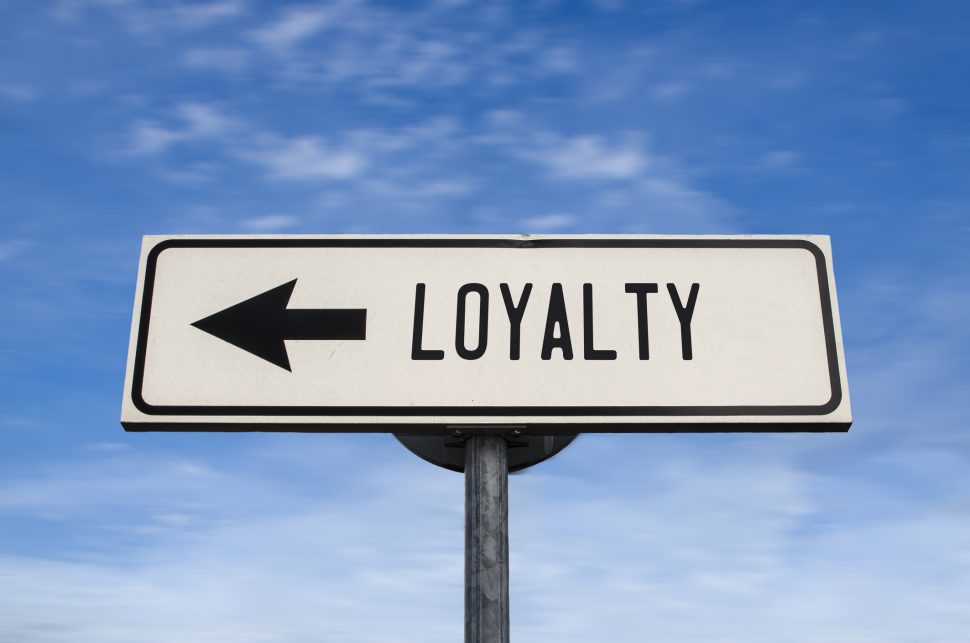
Loyalty
Read moreLoyalty in the mafia means something different than loyalty in its most productive and meaningful ways, or does it? Is blind obedience really loyalty? Ray Zinn explores the finer points and graces or loyalty.
Rob Artigo: Rob Artigo here once again, your host for this edition of the “Tough Things First” podcast. I’m an entrepreneur in California, wonderful to be… Let me try that again. Three, two, one.
Rob Artigo here once again, your host for this edition of “The Tough Things First” podcast. I’m an entrepreneur in California. Wonderful to be back again with you, Ray.
Ray Zinn: Hey, it’s good to be with you, Rob. Thanks for joining me today.
Rob Artigo: Of course Ray’s the longest-serving CEO in Silicon Valley history, ran my Micrel for more than 37 years.
So Ray, you say loyalty is one of the most important human attributes. I was thinking about loyalty, and this is how I framed it was, loyalty in the mafia means something very different than the loyalty we expect in our lives with our families and our places that we work, because those are the more productive and meaningful ways to have loyalty. Blind obedience really is not loyalty anyway. So a healthy loyalty benefits pretty much everybody. You say-
Ray Zinn: So, Rob-
- Apr102024
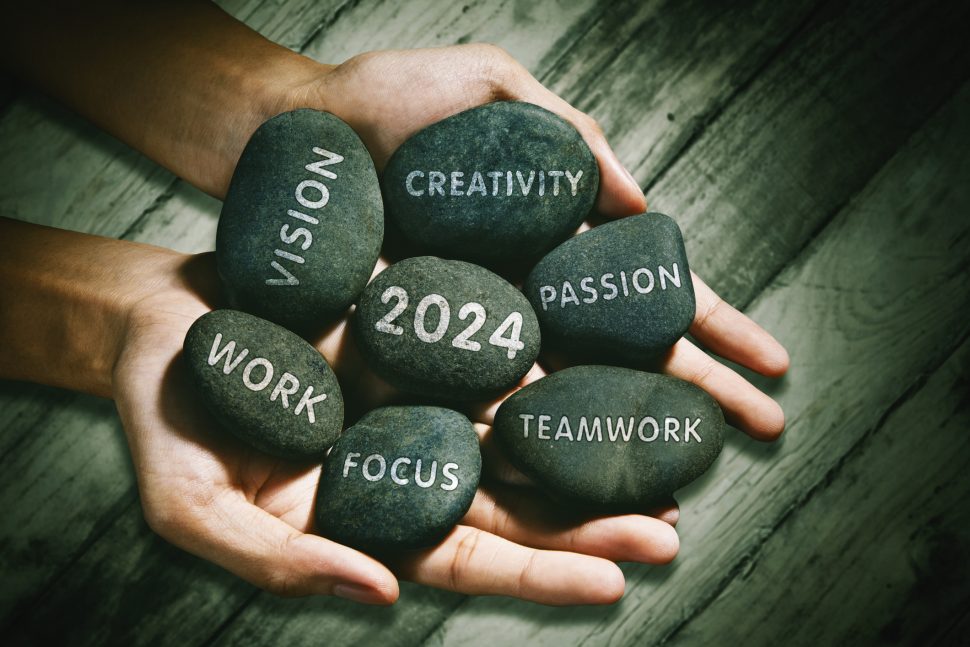
Focus and Outcomes
Read moreEntrepreneurs rarely get what they “deserve”, but most everyone gets what they focus on, good or bad. In this Tough Things First podcast, Ray Zinn takes a deep dive into our focus and how it drives the results.
Rob Artigo: You wrote recently, we generally get what we expect, and you say the reason is our focus is on what we want, and that dictates our decisions. It’s true in our personal lives. Is it true in our business lives and our work environment?
Ray Zinn: Absolutely. I mean, you get what you expect because that’s where your focus is, so if you’re not happy in your work or you’re not enjoying what you’re doing, you’re going to change your focus and that focus becomes your output because again, you can’t think of two things at the same time.
- Apr032024

Creator Burnout
Read moreYouTube and TikTok users know this all too well. Fact: We live in a more isolated work environment, often at home, in our own little space, with what seems like a lot more to accomplish. In this Tough Things First podcast, Ray Zinn discusses “creator burnout”, why it happens, and how to deal with it. (Watch the video podcast here…)
Rob Artigo: Ray, a lot of talk lately and Congress took some action on this is, is the possibility of banning TikTok, and or forcing a sale of TikTok. Now, this podcast isn’t really about that, but one of the side stories that I happen to notice was something called creator burnout. We have these video influencer types that are on these platforms and they spend so much time doing all the work, putting in the… because really, it’s a individual responsibility.You’re going to have some kind of channel on one of these platforms, and you’ve got to do the work. You’ve got to actually do work, and that includes the recording, the editing, you’re writing it, and somebody said that, actually, it’s like storyboarding what you’re going to do, and all the other tasks that are associated with the process. And there’s, apparently, depression that ensues among many of these people, and they even have mental health problems. So let’s talk about creator burnout. Is there a kind of creator burnout that can occur in other tech industries or any industry really, where people have to put in a lot of time and effort in a creative endeavor? I mean, we have creative teams in these things. Silicon Chip Design, for one, I know they have teams of people that do certain tasks in that, and it can be pretty tedious in the creative process.
Ray Zinn: Well, it goes to the saying that if you love what you do, you don’t work a day of your life. And there’s another one which is counter to that, which is, no pain, no gain. But if you do enjoy what you’re doing, you won’t have burnout. I write every day, I write thousands of musings. I’m on my fifth book, yeah, on my fifth book. And so creator burnout really becomes when you lose interest in what you’re doing, when it no longer becomes enjoyable. It can happen in sports. Forgotten now that somebody just retired because it was burnout.
- Mar202024

Merit Based Hiring
Read moreDiversity, equity, and inclusion has supplanted merit as an important decision tool in hiring for many companies, but has it helped or hurt businesses and employees? In this Tough Things First podcast, Ray Zinn explores fundamental truths about fairness, that DEI has set aside.
Rob Artigo: Well, because of all this talk about DEI, that’s the diversity, equity and inclusion stuff that’s been out there, some feel like merit-based hiring is unfair. And you’ve written recently about this, so I wanted to talk to you about it. So let’s see, you wrote that in life, almost everything we do is merit-based. Tell us more about that, and we’ll get started with that part of this topic.
Ray Zinn: Well, what’s interesting is I recently heard that some states are considering doing away with the law exam or the bar exam for lawyers, just to make it easier for certain people to be able to practice before the court. And so again, this DEI thing is getting totally out of hand. We’re almost not going to measure anything anymore. It’s kind of a sad commentary on our society that in order for us to standardize everything so that it doesn’t become difficult for anyone that we lose that ability to differentiate. Even the SAT tests are coming back, they’re bringing back the SAT tests, but they’re making it so it’s easier for certain people to pass them. So, this whole thing of making sure that there is total fairness makes it unfair, as you would. And going to my musing that I wrote, everything is based on fairness. I mean, on merit.
- Mar062024

Are Protests Evil?
Read moreClashes in the streets are never pretty, and Ray Zinn says they never really do much other than cause more division and anger. In this Tough Things First podcast, Ray lays out why protests are negative by nature, but are they evil?
Rob Artigo: It seems like we’ve spent the better part of the last seven years in some state of ongoing protest by one group or another. Got a big group out there right now in various cities doing who knows what, blocking freeways, access to airports, what have you. Typically pretty small groups. I mean, they look big in the areas that they’re congregating, but they’re not particularly a large percentage of the American population. They’re typically pretty small. But they’re very vocal. They’re sometimes violent. They’re kind of a patchwork of causes or cause du jour. You’ve written that you think that protests just in general are evil. Can you explain that?
Ray Zinn: Well, yeah, because a protest is evil. Anything that doesn’t uplift is evil. So you have to say, “Okay, what are you protesting about?” You’re protesting about something that you disagree with or that you feel strong about or whatever. And unfortunately it’s anger. I never heard of what they say they call friendly protest. I don’t know what a friendly protest is. I mean, I don’t think it can possibly be friendly, a protest.
- Feb212024

Difficult Projects
Read moreIn life and business decisions must be made, but they do not always have to be hard decisions if you are prepared. In this Tough Things First podcast, Ray Zinn explores a list of lessons learned that can help you be ahead of the game.
Rob Artigo: Well, I was reading a Forbes piece. It had some experts, and these are 20 tech leaders who shared their lessons from some difficult projects that they had, so they didn’t explain the projects in general, but they said we had a really difficult project. I guess that could be anything from rolling out a product to developing a product or what have you, but they weren’t specific on it. What they did was they offered a few things that you can learn from difficult projects.
Ray Zinn: Or what they learned or what they learned from-
Rob Artigo: What they learned, and I guess the idea is that you could consider these things when you were approaching.
Ray Zinn: Rob before we start that list, even in life, in other words, what you can learn from a difficult situation, whether it be an accident, whether it be an illness, whether it be some other loss of a loved one. These are the difficult lessons that we can take away in life, but the ones you’re going to read refer more to company kind of issues, difficult company problems, which is fine, but I want everyone to know that these apply to life in general.
Rob Artigo: Yeah, you can definitely edit and adjust to make it fit whatever you need to deal with.
Ray Zinn: Any difficult situation.
Rob Artigo: Yeah, so in looking at this list here, I mean there are 20, so I will tell you that if you go to forbes.com and look for this, you can find the whole list. So, we’ll let Forbes handle the whole list for you. We’ll just pull out a full bullet, a few bullet points here and give Forbes credit for having given us some inspiration to take a look at this stuff here. When looking at a, I guess, a product rollout, I’m guessing here, but along these lines is the first one is don’t scale your team too quickly. I guess that means that you don’t want to build faster than you need to because you-
Ray Zinn: Or that you can grow, don’t scale faster than you can grow or to consume it. It’s like how do you eat an elephant? One bite at a time, right? Don’t try to eat the whole elephant in the same setting. It goes to, again, almost any struggle or difficulty project you’re undertaking. Don’t take on more than you can chew.
Rob Artigo: I thought you were going to say, “How do you eat an elephant?” Head first, or something like that. But how about number two or B, if you will, identifying the unknowns early on. I guess going into it, you want as few mysteries as possible.
Ray Zinn: Yeah, so kind of understand whether it be a marriage or whether it be a project you’re starting or whether it be a company, understand what you’re getting yourself into. Be prepared for that. Other words, know all the pros and cons. I had this rule it when I was running my Micrel semiconductor, I had to rule it for every pro you have to have a con. It’s like when you flip a coin, flip a coin is half of its heads, half of its tails. So, half the time you’re going to have pros, and half the time you’re going to have cons, and so let’s find them. Let’s identify the cons. We’re real good at identifying the pros, everybody. I mean, that’s how you start a project. You’re all enthusiastic and excited, and so you can come up with all kinds of reasons why you want to take on that project, whether it be a project or a company or a spouse or a home or anything.
What you want to do, look at the pros and cons. Okay, so a pro of course is the advantage. This is why I want to do it, and as we know Rob, those are the easy ones to come up with. What the difficult ones to come up with are the cons, because we don’t want to talk ourselves out of the project or the relationship, so we tend to try to ignore the cons. If you ignore something, what’s your chances are going to happen? You’re going to get hurt, not wearing a seatbelt. You say, “Well, how often will I get into an accident?” Well, until you do, you wish you had worn your seatbelt. So, it’s again, look at the reasons why your project may not succeed or your relationship might not succeed. You got to look at all the downside and make sure they’re equal. Equal number of pros, equal number of cons. Don’t con yourself into only having pros. How’s that one, Rob?
Rob Artigo: Oh, I love it. And yeah, of course if you have all pros, then you’re just into confirmation bias and exactly just telling yourself lies. All right, so the next one is make sure that you have the right people for the project.
Ray Zinn: Again, this can go to a marriage relationship, could go to a company, could go to a product. Make sure that you’re heading in the right direction. Again, it is key to identify what it is you want. In other words, what is your expectations? What problem are you trying to solve? And if you’re just being cavalier about your project or the company you’re starting or whatever relationship that’s going to come back to bite you because you haven’t looked at what your objectives are, in other words, what is you trying to solve? Don’t solve something that doesn’t need to be solved.
Rob Artigo: Also, I guess it says prioritize expert guidance. Make sure that you’re prioritizing your expert guidance.
Ray Zinn: I hate to keep only bringing up marriage relationship, but it goes to what we’re talking about. So in the US, divorces are about what? 50% to 60% marriage end up in divorce. Whereas in India, the divorce rates is only 94% or 95%, and the reason is because the parents help the individual find the right partner. So, those are the experts. Believe it or not, your parents know you better than you do, so they help out. They want the best for you. If they love you, they want the best for you. So, you want to make sure your experts are really on your side, whether it be you’re starting a company or whether it be your product that you want to do.
Again, I had this group that had to have at least six people in it that would analyze your project and give you their opinion of that project, and you had to get unanimous agreement among your 16 members or the project wouldn’t go. We called it the product definition committee. So again, whether you’re running a company or starting a project or finding a spouse, get some people around you you trust that will give you guidance that will help you decide on the value of what you’re doing.
Rob Artigo: Outline the project scope and SMART objectives. I don’t know, maybe that one’s a little too esoteric for us. Outline the project scope. Let’s go with that. I guess understanding what the objective is.
Ray Zinn: Well, we did, we talked about that just prior, so then maybe that’s one we’re just going to kind of glean over a gloss over because it is very similar to what we just talked about. Have the right goal in mind when you go into a relationship or a product or a company, make sure your goals match.
Rob Artigo: And then bouncing off of that is set your expectations carefully.
Ray Zinn: That’s an interesting, that goes back again, this all could be summarized down to its pros and cons, okay? You have to expect difficulty, you have to expect challenges. What happens, Rob, is we expect everything to go hunky door, everything to be perfect, wonderful, nothing ever to happen, everything ever to go wrong, but that’s just nonsense. Anybody that’s lived more than 12 years knows that you’re going to have difficulties, okay? And that’s just the nature of life mortality is that you’re going to run into problems. So, when you manage your expectations, make sure they include the cons, the reasons that things will fail, then you’re ready. You’re prepared. So, that’s the main thing, is to be prepared. That’s the scout motto, isn’t it? Be prepared. So, you want to get prepared for whatever happens. It is really the ones that fail are the ones that are just not prepared or for problems, and so they’re not managing their expectations because they’re ignoring the difficulties that they’re going to experience.
Rob Artigo: Again, that’s forbes.com. I’ll just tell you it’s Expert Insights 20 Tech Leaders Share Lessons From Difficult Projects, so if you want to check that out, go ahead. Thanks again, Forbes. Appreciate it. This is the fast-growing podcast for Silicon Valley. A lot of people are listening to it and we’d like you to rate it at your favorite podcast platform. Please also check out Ray’s books, the Zen of Zinn 1, 2, and 3. Also, Tough Things First. I look forward to the next time, Ray.
Ray Zinn: I do too. Thanks, Rob.
- Feb142024

Who is Responsible for Your Prosperity?
Read moreThe ups and downs you feel about how quickly or slowly you are getting ahead are not imaginary, but if you are waiting for some magic, government, pixie dust, for a boost out of a downturn well… In this podcast, Ray Zinn ponders the question, should you be relying on the government or yourself for your prosperity?
Rob Artigo: Well, there is this term floating around lately called Unleash Prosperity. There are actually these committees, these nonprofit groups that have popped up to go around and promote Unleash Prosperity. I think it’s really just a money generating scheme in many cases, but they call it Unleash Prosperity, and it sounds really positive and optimistic, and the idea is how to help the government make you prosperous. Give me an idea what you think about this. I know you wrote a little bit about it, so give me some thoughts.
Ray Zinn: Unleashing prosperity is really something you have to do for yourself, otherwise you’re relying on the government to help you become prosperous. So again, the focus should be unleashing your prosperity, not unleashing prosperity kind of “general prosperity.” If we’re going to be successful, we have to take control of our own prosperity.
- Feb082024
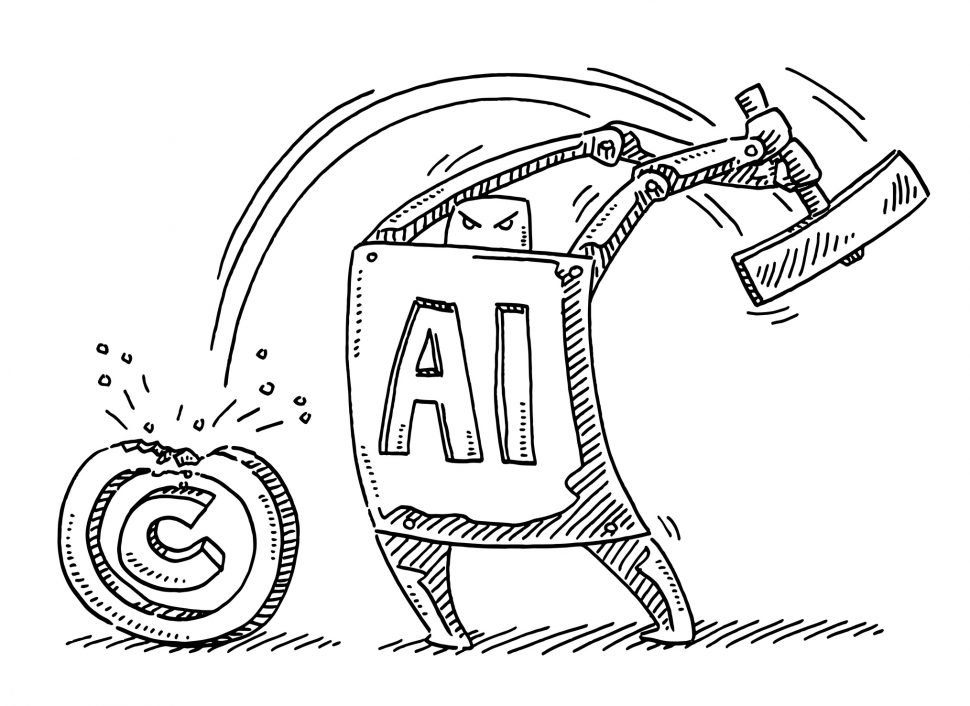
Ai, Creative Work and a Twist That may Surprise You.
Read moreAi continues to make headlines and alter the way we think about art and plagiarism, and even the law. In this Tough Things First podcast, Ray Zinn discusses the diverging lines between what is your creative endeavor and what has no copyright at all. (What we discuss here is anecdotal, based on news reports, and should not be construed as legal advance. Always, consult a lawyer.)
Rob Artigo: Well, as a writer, the subject of copyright comes up, something that’s copyrighted, and plagiarism has been in the news a lot lately-
Ray Zinn: Yes. Big time, yeah.
Rob Artigo: … and defining what plagiarism is. And I wonder, when I’m looking at AI, where does AI get its content? If I create an AI-generated article, apparently, it can’t be copyrighted, but where does the material come from?
Ray Zinn: Well, AI is really a buzzword that it’s getting a lot of press. There’s a lot of concern about it. Just the other day, the government was getting concerned about AI chips going into China, and they’ve had to modify the capability of the AI chip, like what we do when we’re talking about a GPS. The military, they have GPS that goes down to a couple, two or three feet.
- Jan242024

2024 Trends – More work from home?
Read moreCovid is still affecting the work place and what other trends might we see in 2024. In this Tough Things First podcast, Ray Zinn Discusses when he expects most people will be back in the office. (Click here for the video.)
Rob Artigo: Welcome to the Tough Things First podcast, your indispensable source for business, leadership and life advice with the longest-serving CEO in Silicon Valley history. I’m your guest host, Rob Artigo. And he’s Ray Zinn. Good morning, Ray.
Ray Zinn: Hey. How you doing there, Rob? Good to be with you again.
Rob Artigo: Good, good, good. Good to see you.
Ray Zinn: Thank you.
Rob Artigo: Well, COVID is mostly in the rear view mirror now, but the fallout apparently lingers. We still have-
Ray Zinn: Oh, man.
Rob Artigo: We still have a lot of people working from home, remote working. And I know that there is… I mean, some big companies, Facebook and Apple and other companies. It’s a big push to try to get a lot of people to get back into the office, in some cases requiring people to get back into the office. And some people are still balancing a little home, a little work. What do you think, Ray? In 2024, are we going to see more work-from-home? Or is it going to start tapering off?
Ray Zinn: Well, it’s tapering off now, actually.
- Jan102024

Divide and Conquer?
Read more“Divide and conquer,” is a frequently used term and almost as frequently misused when unity is what you’re really after. In this Tough Things First podcast, Ray Zinn talks about how a winning team in business or on the playing field is one that focuses on what unites, not what divides.
Rob Artigo: I’m Rob Artigo, your guest host for this edition of the Tough Things First podcast where I get a chance to talk with Ray Zinn, as noted, the longest serving CEO in Silicon Valley. And that’s for good reason. He’s been there, he’s done that. Hi Ray. It’s good to be back.
Ray Zinn: Hi, Rob. Yeah, thanks. Making me blush here buddy.
Rob Artigo: Well, good. Divide and conquer. I was kind of looking at the history of this, and this is the tactic Julius Caesar used 22 centuries ago, but he wasn’t the first person to do it. So divide your enemies up and conquer them. And in modern times we’ve gotten to this notion of divide and conquer meaning I have to take my team and divide my team up into smaller groups and then I can conquer. You’re saying that that is not helpful logic?
Ray Zinn: Well, that’s going back to the silos.
- Jan032024

White Lies
Read moreThey may seem harmless, but in business and personal lives a white lie can take on a life of its own. In this Tough Things First podcast, Ray Zinn looks at what qualifies as a white lie, and, if done by accident, what to do about.
Rob Artigo: I’m Rob Artigo, your guest host for this edition of the Tough Things First podcast. I’m a writer and investigator in California. Here with me is Ray Zinn, the longest serving CEO in Silicon Valley history. Hello, Ray.
Ray Zinn: Hello there, Rob. It’s good to be with you today.
Rob Artigo: Good to be back, Ray. You recently wrote about your feelings on what is known commonly as the white lie, and you’re not really a fan of white lies, are you?
Ray Zinn: No. Well, no matter how white we try to make a lie, a lie is still a lie…
- Dec272023

The Interview
Read moreFor the entrepreneur who wants to scale, hiring is going to happen. Can there be good interviewers and bad interviewers in this process? In this Tough Things First podcast, Ray Zinn uses a lifetime of hiring knowledge to help interviewers and interviewees, get it right.
Rob Artigo: I’m Rob Artigo here once again, your host for this edition of the Tough Things First podcast. I’m an entrepreneur in California. It’s always wonderful to be back, Ray. I really appreciate it.
Ray Zinn: Well, good to be with you again today again, Rob.
Rob Artigo: For an entrepreneur who wants to scale, hiring is going to happen. Eventually, you’re going to hire an assistant and maybe that’s your only employee for the type of business that you do, or you’re going to have hundreds or… I don’t know, how many employees did you have at peak at Micrel?
Ray Zinn: We had 1,400 at the peak.
Rob Artigo: That’s pretty big and there are companies that have many thousands of employees out there that they have to hire, and people have the responsibility of hiring at all these different locations and levels, in different departments and that sort of thing. So I guess you can have amongst them some good interviewers and some bad interviewers.
Ray Zinn: Absolutely.
Rob Artigo: You’ve said that the traditional employee interviews tend to cover the normal skills and experience stuff for the job, but they really don’t delve sufficiently into the behavioral issues of the potential employees.
Ray Zinn: [inaudible 00:01:09] 100% true.
Rob Artigo: Was this something that you learned right away or that you developed to understand over time that your basic questions didn’t fill the gap?
Ray Zinn: Well, I think I knew it or at least had an idea of it, but obviously as I hired more people and had a chance to interact with them, I developed some better corollaries to what constitutes a good employee?
Rob Artigo: Well, you put together a list, another really good one, and I always like it when we do lists here on Tough Things First, the podcast, and I think it’ll benefit everyone really involved in the hiring process. So it could help those people hiring and asking questions, but also those looking for jobs so that they can prepare to answer those kinds of questions if they hear them. And they should be able to answer those as just a way of self-reflection. That’s what I always gather from what I hear from you on this podcast.
So maybe the best thing to do is I’ll read this, there’s seven of them here. I’ll read the list and I’ll let you comment on each one. Give us some good insight on each one of these and the reason, sort of your logic as to why it’s important to know these things. So number one here is, again, these are interview questions. So they’ll be asked as a question, do you like working as an individual or in a team? If they say individual, this is what you wrote afterwards. If they say individual, this is a warning sign.
Ray Zinn: That’s so true. And go back to the COVID era, if people like working from home, working remotely, sometimes that’s a key to the fact that they don’t like working with other people. They don’t like to be around other people. I know I’ve had some people that just couldn’t wait to get back to work. They liked working with others. They liked that team spirit, that ability to bounce things off each other and come up with ideas more. You know, two heads are better than one, as they say. So again, when somebody says they’d rather work as an individual, they’re less likely to be a team player.
Rob Artigo: I guess you want them to be able to work as an individual when they’re working on an individual project, but if they’re… They need to be team players, you want to know that they can be part of the company.
Ray Zinn: Yeah, I mean, again, being a good individual worker is fine, and even working remotely is fine, but it’s a warning sign. So you want to delve into it further to find out if they don’t like working as a team. Other words, find out are you a team player or not? And if you are, as they say, there’s no I in team, and so if they like working together as a team, then great. But if they, for example, say, “No, I’d rather just work on my own and be by myself,” or so forth, then that’s an indication that they don’t like to work together as a group and they’re more likely to want to work remotely and just be an individual player.
Rob Artigo: All right, here’s question number two. Did you love, like, or dislike your last boss or company? And your comment there was dislike is a warning sign.
Ray Zinn: Yes, that’s a very key one because if you didn’t like your previous boss, you’re less likely to your new boss. So delve into why they didn’t like their boss, and if they come up with things like, “Well, he swore,” and “He was not kind,” and so forth, you want to dig into that, maybe find another coworker that would back up that statement. So of course if you work in a hostile environment, you don’t want to, obviously you might not like working for your boss. You might go back two or three jobs even and find out, let’s say they work for three or four different companies. Just say, “What did you like about company one, two, and three and four?” and ask them about each company. And if they only had one company that they didn’t like, then that’s not too bad. But if it seemed like every time they left, “Oh, I didn’t get enough pay,” or “I didn’t like my boss,” or “I didn’t like the commute,” or they come up with some excuse, that that’s a warning sign that you need to dig into.
Rob Artigo: All right, well the next one is, number three, do you have lots of friends or few friends? I guess few, according to you, is a warning sign.
Ray Zinn: So again, this goes back to number one, which is do you work as an individual or as a team? There are people who don’t like to work with other people, they don’t have a lot of friends. So if they have lots and lots of friends, that means they’re more likely to get along, more gregarious, more willing to be compatible with the work environment. Whereas if they don’t have a lot of friends, then they’re less likely to be compatible with the work environment.
Rob Artigo: Number four is are you more concerned about salary or opportunity for advancement? Salary is a warning sign.
Ray Zinn: Again, if their focus is primarily on their income, what my perks are, what’s in it for me, me, me, me, that’s a warning sign. Of course, it can’t always be salary. I mean, salary could be part of it, but don’t focus on it. And so opportunity for advancement sounds like they like to improve, they like to continue to grow as an individual as opposed to, “Well, I’m just in it for the money.” So again, if they’re in it for the money or the perks, then you want to dig a little further.
Rob Artigo: Yeah, that’s number five, which is our company perks important to you? Is that different than that or is it part and parcel to number four?
Ray Zinn: It’s a little different. For example, salary has a little more to do with what they think they’re worth as an individual. Perks are trivia things like paid meals at work or free meals at work, I should say. The exercise gym, that means they’re not going to be a very hard worker if they’re just looking for the perks, because that reflects more of their ability to stay focused on the job as opposed to looking forward to the breaks, or the cars, or whatever else the little perks are that they’re wanting to have as part of their work environment.
Rob Artigo: Number six is do they ask questions? And if the answer is no, then that’s a warning sign.
Ray Zinn: The more questions that person asks during interview, the more interested they appear in their job, in the potential position. But by not asking questions, this says that they’re indifferent or they’re not that focused on you as a boss or interviewer. They, they’re more focused on just getting the job or being passive about what the job’s all about. The more questions they ask about the job, that shows their interest level.
Rob Artigo: And I guess it has to be the right kind of questions because if he asks a ton of questions and they’re all about perks that can’t be good.
Ray Zinn: Or about salary or about location or about advancement, yeah. The questions they should be asking that are good are “What’s my next level? What opportunity do I have beyond this?” Which could be a negative also if they’re only focused on advancing. But if they want to know about the team, about the meetings that they’re going to have and just the whole work environment, then those are good questions.
Rob Artigo: And this one’s not a question you ask, but it’s one that you glean in the process of the interview. So the last one here is were they dressed appropriately for the interview? And if the answer’s no, then that’s a warning sign.
Ray Zinn: Again as showing respect. In other words, if they come dressed as you would expect them to come, then that shows respect for the interview. If they come dressed in an inappropriate way, one you weren’t expecting, then that’s a warning sign that you need to delve into you further. So again, we don’t want to overemphasize dressing up, but we want to make sure you’re dressed appropriately for the job interview. For example, if you’re interviewing to be a lifeguard, obviously if you came in more of a sport outfit, that’d be more appropriate than you came dressed in a tuxedo as you would. So again, dressed appropriate for the job interview.
Rob Artigo: Right, right, right. Well Ray, for your listeners, I’d like them to rate this podcast on their favorite platform. And as always, those folks who are listening right now can reach out to you, Ray Zinn, with their questions@toughthingsfirst.com. There you’ll find the social media links, blogs, and links to information about the book, Tough Things First. Also, pick up the Zen of Zinn series one, two, and three. Three books on entrepreneurship, leadership, management, but also discipline, determination, and life advice. Just like the stuff you hear right here at The Tough Things first podcast. It’s The Zen of Zinn Series one, two, and three. Great podcast, Ray.
Ray Zinn: Thanks, Rob.
- Dec202023

Hope and Optimism
Read moreIs there a difference between hope and optimism? In this Tough Things First podcast, Ray Zinn gets to the heart of the matter and warns there is a danger of letting your hope and optimism overrule your logic.
Rob Artigo: I’m Rob Artigo, your guest host for this edition of The Tough Things First podcast with Ray Zinn, the longest-serving CEO in Silicon Valley history. Hello, Ray.
Ray Zinn: Hey, Rob. So good to be with you today.
Rob Artigo: Is there a difference between hope and optimism?
Ray Zinn: To a degree. I mean, they’re somewhat synonymous, but in the case of hope, that is a singular thing that you have something that you desire, strongly desire to have happen.
- Dec132023

No Consequences.
Read moreIt seems everywhere we turn these days, lawmakers are opting to demolish basic rules of society. In this Tough Things First podcast, Ray Zinn discusses the troubling trend of a world without consequences and why it can only get worse unless we address the problem. (Click Here to Watch Video Podcast)
Rob Artigo: Welcome to the Tough Things First Podcast, your indispensable source for business, leadership, and life advice with the longest serving CEO in Silicon Valley. I’m your guest host Rob Artigo, and he’s Ray Zinn. Hello Ray.
Ray Zinn: Hey Rob. How are you today?
Rob Artigo: I’m doing well and-
Ray Zinn: Great.
Rob Artigo: ... it’s one of my favorite days because it’s a special edition of the podcast, we’re doing it for your YouTube channel. And if the folks out there aren’t listening or watching the video already, they can go to this link at your website, toughthingsfirst.com, and we will have a chance to click there and view the video. So if you haven’t done that already and you want to go ahead, it’s always an option when we do these special podcasts.
Ray Zinn: Also hit the like button too. That gives us more-
- Dec062023
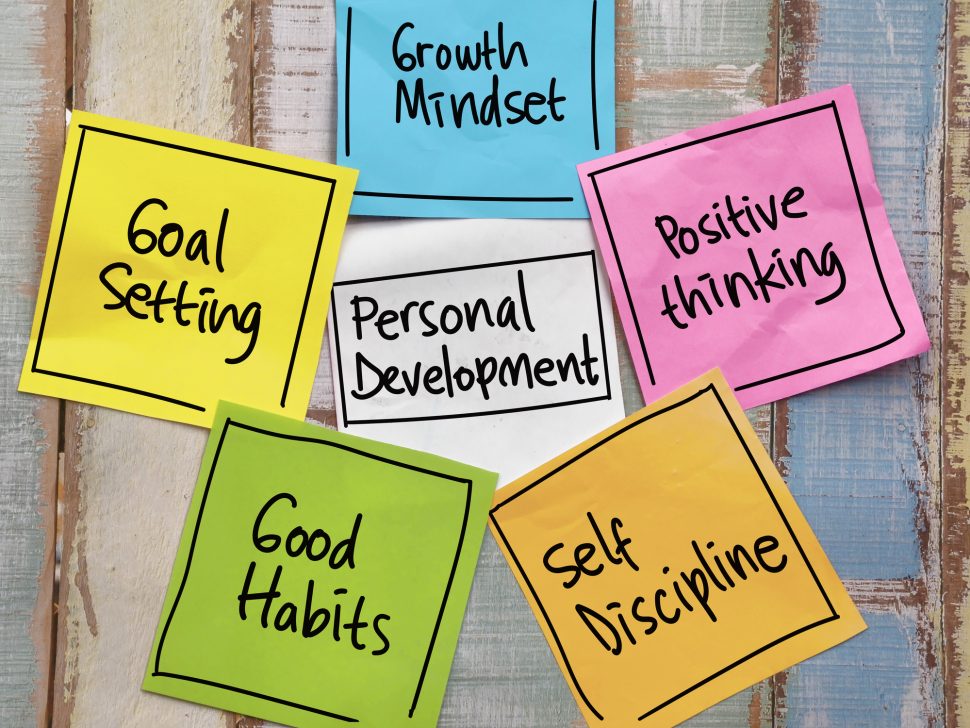
The Elements of Ambition
Read moreWealth does not mean success. Many people got wealthy other ways, and never could claim they were ambitious in their efforts to get there. In this Tough Things First podcast, Ray Zinn explores the building blocks of ambition, and why it is necessary to go from rags to riches.
Rob Artigo: I’m Rob Artigo, your guest host for this edition of The Tough Things First podcast. I’m a writer, and I’m an investigator in California. Here with me is Ray Zinn, the longest serving CEO in Silicon Valley history. Hi, Ray.
Ray Zinn: Hello there, Rob. Good to be with you today.
Rob Artigo: You wrote recently that the key to being successful is ambition. So tell us a little bit about that.
Ray Zinn: It takes ambition or a passion to be successful, and if you’re passionate about something, then you’ll be ambitious, and so they’re tied together.
- Nov222023

Curiosity and Innovation
Read moreEarly tech often seems like it solves a problem that doesn’t need fixing, but it can and does lead to sweeping change over time. In this Tough Things First podcast, Ray Zinn discusses the nexus between curiosity and innovation and why they are inseparable.
Rob Artigo: I’m Rob Artigo, your guest host for this edition of the Tough Things First Podcast, where I get a chance to talk with Ray Zinn, as noted the longest serving CEO in Silicon Valley. And that’s for good reason, he’s a pro, inventor, and an all around good guy to talk to because he’s got a lot of knowledge. Thanks again, great to be back with you, Ray.
Ray Zinn: Well, thank you, Rob.
Rob Artigo: Well, I was reading a Forbes article recently, it got me thinking about the nexus between curiosity and innovation. And so we’ll get to that in a second. But maybe I could ask you, and we can learn a little bit about you, if there was a time in your life when you realized you had a keen sense of curiosity?
Ray Zinn: What piqued my curiosity is when there was a problem to be solved that wasn’t being solved by a present method, as you would. And so I’d say, “Okay, well, how can I solve this problem?”
- Nov012023

Stress and Distraction for the Essential Leader
Read moreThings in life that we have to deal with include stress and distraction. In this Tough Things First podcast, Ray Zinn says there are different degrees of stress and distraction and you have to know yourself to stay ahead and stress free.
Rob Artigo: I’m Rob Artigo, your guest host for this edition of the Tough Things First Podcast where I get a chance to talk to Ray Zinn, as noted, the longest serving CEO in Silicon Valley, and that’s for good reason. Hi Ray.
Ray Zinn: Hey, good to be with you today.
Rob Artigo: We’re going to focus this podcast on stress and distractions as it relates to the essential business leader. We had a series on the essential leadership. It was enormously successful, so we’re going to add this in addition to those essential leadership podcast, if you will. A lost chapter.
So, this is on stress and distractions. We know that stress and distraction is inevitable in business and in life, right, Ray?
Ray Zinn: Exactly. That’s one of the things in life that we have to deal with is stress and distraction.
Rob Artigo: What are the kinds of things, events or the attention grabbers, something like fishing lure, what are those things that can distract a leader from the tasks at hand?
Ray Zinn: Well, if they’re not happy in their job, if they don’t like what they’re doing, if they tend to have a disorder, that symptom where they have a hard time focusing, that’s an issue that increases stress, because if you get distracted, you’re going to be delayed in whatever thing you’re doing, and that just puts more stress on you.
Especially if the boss is yelling and screaming at you for why aren’t you getting this task completed? You’re easily distracted either by something next to you or around you, or if you’re the leader yourself and you become easily distracted, your employees are going to notice that. They’re going to see that you’re easily taken off-task, you become less focused. It’s a disorder. I mean, it’s something that you have to fix.
Rob Artigo: It’s the attention deficit hyperactivity disorder, ADHD that you were talking about. I imagine that if the leader of the company is taken off-task by distractions, that person’s behavior and misdirection in the process could end up taking the teams off of their game without really taking them off their focus.
Without even knowing that they’re doing … all they’re doing is following the leader, and if the leader’s going, “Oh, look,” like a dog. You’re walking down the pathway with your dog and your dog goes, “Squirrel,” and runs off into the bushes. This can happen, because you’re supposed to be going that way, and the dog runs off into the bushes because it sees a squirrel. Okay, just that fast you could lose it, and that’s that ADHD you’re talking about.
Ray Zinn: Right. Again, there are people who can focus and there are people who can’t focus. When it comes to differentiating or trying to understand why you become distracted, you’ll find that generally the reason you’re distracted is because you don’t like what you’re doing.
I know that having run a company for 37 years as a CEO, I can tell you that there are a lot of jobs, a lot of tasks that I had to perform that I didn’t like. In fact, 80% of my responsibilities as the CEO of the company were doing things that I didn’t like, and so I had to focus on loving the things I hated. That was key to really becoming, I think, a long-term loving CEO is learning to love the things I hate, because then I didn’t look at those 80% of what I did as being things I didn’t want to do, because they were distractions.
Can you imagine if you don’t like 80% of your job, how distracting that is? You’re not going to do a very good job 80% of the time. So face it, part of being an essential leader is loving the things you don’t like doing, and so that takes some art. So, what I did to learn to love the things that I dislike doing is called discipline. Discipline is doing what you don’t like doing and doing it well. So, I would take a task that I didn’t like to do and I would work on it until I loved it.
Whether you’re a singer or an artist or a machinist, or whatever your hobby is, you didn’t love to do it until you start doing it well. I mean, I’m not a good golfer, and so if I want to like golfing, I’ve got to become better at it. I got to find how to become a better golfer or singer or writer, or whatever it is I’m going to do. I have to enhance that trait.
So, let those weak things become your strength by learning to love what you don’t like doing, because that’s discipline. All discipline is is doing what you don’t like doing. If you talk about all the successful athletes, their time they spend practicing, not doing the game itself, but their practice time is 10 times the amount of time that they spend actually on the court or on the field, because they’re just doing exercises, they’re getting their body in shape.
Doing things that are stressful, like exercising, is part of your job. The essential leader has to be able to deal with those tasks that he doesn’t like doing, and so that’s the key. I mean, I will tell you, even to this day at my advanced age, I can tell what I don’t like doing. If I find something I don’t want to do, I’m going to go get it done now and finish it.
As an example, I had a pool pump go out and it was driving me nuts trying to figure out what was wrong with it and how to fix it. I’m not exactly the guy that loves to do repairs, and it’s dirty and it’s not something I enjoy doing. So it began to bother me, and this is just recent, it began to bother me that I didn’t want to fix this pool pump. Yet my pool has been winterized and it’s shut down, so I don’t need the pool pump, but the fact that I thought in my head, “I don’t want to do this,” I decided I’m going to go do it.
So even though it’s the middle of winter and I’m not using the pool and I don’t have to have it done today as you would, I went ahead and I repaired the darn thing. I made a few mistakes and it took me some time and I was thinking some pretty ugly things about it, but anyway, I went ahead and I got it done. So, this again is doing what you don’t like doing and doing it well. This is a key to being an essential leader is learning to love those 80% of those things that you don’t like doing. That’s just plain and simple discipline.
Rob Artigo: Yeah, it comes down to your slogan, which is also the title of your book, Tough Things First.
Ray Zinn: Right, exactly.
Rob Artigo: It’s do the tough things first. I think that’s how, from the many stories that I’ve heard from you, the key to developing that discipline is recognizing, okay, so if I do those things that I don’t want to do right up front, I can spend the rest of the day doing the things that I want to do. But you get those things out of the way and it makes you focus on, like you said, getting that pump done. There’s a sense of satisfaction that goes along with that too.
Ray Zinn: Well, my son told me, “I don’t know why you’re wanting to repair that pump. You got enough money, you can go out and buy 1,000 pumps. So, why are you screwing around repairing that pump?” I said, “David, it’s because I don’t like doing it, and I don’t like not wanting learn how to like to do the things that I don’t want to do. So, it’s that weakness that I want to make my strength.”
Sure, sure, I could afford 1,000 pumps, but I didn’t want to mess with it. I mean, I didn’t want to just do that, I should say. I didn’t want to pass that opportunity up. So I grabbed it, put it on the bench and took it apart. It was dirty and it was messy and it took time, but again, I’m trying to get the point across, is that I’m trying to tell everybody or have them understand that it doesn’t take a big project to take you off your game, it can be a small thing like this pump.
So honestly, I’m telling you my audience, and I’m telling you, Rob, it wasn’t that I couldn’t afford a different pump. I could have bought a brand new one. It’s just that it bothered me the fact that I didn’t want to fix the darn thing. So I said, “Okay, since I don’t want to do it, I’ve got to walk the talk, okay?” So part of walking the talk was I grabbed the doggone thing, put it on the bench, took it apart and fixed it. Then I give myself a high salute, I said, “Right on there, Raymond. I did it.”
So again, learning to love the things you hate is key. I don’t care how simple the task is, whether it’s out there mowing the lawn, whether it’s out there picking the apples or whatever it is you’re going to do. Even though you can afford to have 10,000 people do it, that’s not the key. The key is think of the things you don’t want to do in your life and go do them.
Whether it’s cooking your own meal, whether it’s doing your own dishes, whether it’s mopping your own floor, cleaning your own bathrooms, polishing your own shoes, I don’t give a darn, washing your own car, repair whatever’s broken in your house. It’s not how much money you have, it’s the fact that you learn to love the things you don’t like doing, that’s the key. I will tell you that anything I don’t like doing, I’m going to jump on it and get it done. Do the tough things first I always say.
Rob Artigo: That’s right. A big part of this is we’ve been talking a lot about distraction, but also here stress. You said stress has a lot to do with expectations, but stress itself, the things that cause stress include, primary reason is expectations. Talk a little bit about that.
Ray Zinn: Sure. So again, back to the water pump. My expectation was to get that pump fixed and it was causing stress, because I didn’t know how to repair the pump. So rather than just writing a check and buying a new one, I mean, that would’ve relieved the stress for sure, because I would just signed it off and a new pump would’ve come, and I’d put it in or have it put in and away we went.
But that increased stress in a different area, because I’m avoiding, as you would, doing the tough things first or doing what I don’t like doing, and that’s stress. So I know it sounds counterintuitive, but you can cause stress by trying to avoid stress, if that makes sense.
Rob Artigo: Yeah.
Ray Zinn: So in my mind, my expectation is is that I’m not going to let any task get me down, okay? I’m going to pursue it until I solve it, whether it be writing musings, whether it be writing books. There’s a lot of things I do that I really don’t like doing, but I learned to love them by getting involved and just finishing them, and that relieves stress. So if you want to relieve stress, then learn to do the tough things first. Get them out of the way, that’s how you do it.
Rob Artigo: The stress, whether it’s the expectations of you want to get something fixed and you stew about it for a while. If it doesn’t get done and there’s no action taken on it, that stress, then you’ve got the next thing that comes along, then you’ve got the next thing that comes along. Then that’s where you say the stress, stress, stress and more stress. But what is the net effect on the leader already burdened by responsibilities of running a business or a corporation or whatever?
Ray Zinn: It’s procrastination. In other words, if you’re putting off doing something because you don’t want to do it, that’s still going to be on your mind. You’re still going to have that in the back of your head, “I got to get to that someday.” Like this water pump thing I keep referring to. I didn’t need it for four or five more months, but I didn’t want that on my mind. I didn’t want to have that stress bugging me about that thing, so I just went ahead and did it, got it out of the way.
So again, the whole thing about doing the tough things first is to do the things you don’t like doing first. Get them out of the way, and then begin, as they say, the rest is easy. So that’s the key here, begin, the rest is easy. So, that’s the key to being a essential leader is being able to really focus on and getting those dirty tough tasks out of your way first.
Rob Artigo: Now, we talked about in a recent podcast about the flight or fight syndrome with stress that can take over. If it does take over, what can we expect for our stress level?
Ray Zinn: Well, if you have a lot of fight or flight activities, you’re doing something wrong. You have to examine, why am I in this fight or flight syndrome? Whether it’s making payroll, whether it’s getting this project out in a timely way, that all adds to the stress.
This fight or flight syndrome is stress, and so you want to minimize the number of fight and flight stress activities that you have. Again, I know I go back to repeating myself, doing the tough things first, get them out of the way. Whether it be a fight or flights problem, get them out, finish them, don’t let them carry on. Hopefully you’re not going to end up in a long battle where your fight goes on for months or years.
Rob Artigo: I suppose too much stress and too many distractions can lead to irrational decisions. I think I heard you say that. I saw you write it as a matter of fact.
Ray Zinn: Yeah, that’s what happens. If you’re just trying to knock it out just to get it out of the way, get it off your plate, you might make an irrational decision, because you don’t want to deal with it. Of course that’s not what I’m referring to about loving the things you hate, ’cause you can’t love something you’re making an irrational decision about.
So again, it’s doing a good job. As I said earlier about discipline is doing what you don’t like doing and doing it well, doing it well. That’s not irrational, that’s doing it right the first time. Measure twice, cut once.
Rob Artigo: Let’s see here. It says life is too short to get worked up over things you can’t control, and this is what you wrote, saying, “Don’t worry about things you can’t control and only be concerned about the rest.”
Ray Zinn: Right.
Rob Artigo: Yeah.
Ray Zinn: So again, if you’re worrying about things you can’t fix, then it’s going to be that fight or flight, you’re going to be stressed about it. So if it’s something you can’t control, there’s nothing you can do about it, so letting it build up as stress is really going to cause you to do things that you’re going to regret doing.
Now, if there is things you can change, then just be concerned about them, but not change … I mean, sorry, things you can’t change, you can be concerned about them, but not stress over them. So as I said earlier, don’t worry about things you can’t change, just be concerned about the things that you can’t.
Concern is different than worry, okay?
Rob Artigo: Yeah.
Ray Zinn: There’s a difference between that, ’cause worry means it’s all-consuming, it bogs you down, whereas just being concerned is to recognize the issue so that in a timely way you can resolve it.
Rob Artigo: Well, exercise is a stress reducer as well, and I know that you start every day that way. It’s part of doing the tough things first for you. Are there other ways that we can just mitigate stress in a general way?
Ray Zinn: Sure, take 10. Maybe go for a walk or maybe go home early. ‘Cause if you’re under stress, you’re not going to be rational about the way you fix or solve a problem, so rather than just keeping at it and do it in an improper way, take five. Just go for a walk or take a break, change what you’re doing, set it aside for a bit, and you’ll be surprised.
If you set it aside for a while and then come back to it, whether you’re writing a book, whether you doing podcasts like we’re doing today, or whether you’re a football player or whatever it is, if you’re getting bogged down, if you’re in a rut, then the best thing to do is to back off, let it simmer as you would, and then come back to it as you would when your mind is more clear.
Rob Artigo: Let’s wrap up with this one last thought, and that is, what are some of the things we should not do to address stress that might exacerbate the problem, create worsening stress?
Ray Zinn: Well, I mean, I talked about them earlier. Number one is procrastinate. Don’t put off tomorrow what you should do today, as you would.
Rob Artigo: Yeah.
Ray Zinn: So procrastination, it just increases stress, because if it’s in the back of your mind ’cause you procrastinated it, that causes stress, ’cause now you’ve got to remember it in order to get back on it. So, avoid procrastination.
Then obviously if you are bogged down, you’re in a rut, it’s to set it aside, not let it get you that circular reasoning going on so you’re going to exacerbate the problem. Then just be familiar with stress, understanding stress. So as I said, don’t worry about stuff you can’t change, only be concerned, and so don’t focus on things you can’t fix.
So to be an essential leader, you have to understand yourself. You got to recognize your limitations, what your strengths, what your weaknesses are, and be willing to do whatever it takes, no excuses.
Rob Artigo: As always, you can reach out to Ray Zinn with your questions at toughthingsfirst.com. Continue your education and the conversation with all the podcasts, blogs, and links with information to Ray’s books, Tough Things First, and the Zen of Zinn series one, two, and three. Great conversation, Ray.
Ray Zinn: Thanks, Rob.
- Oct182023

The War Alternative.
Read moreFrom politics to road rage, there are all kinds of wars, but do they all need to be fought? In this Tough Things First podcast, Ray Zinn discusses conflict in our homes, communities, and abroad and how to seek alternatives to fighting. (Click Here to Watch on YouTube!)
Rob Artigo: Welcome to the Tough Things First podcast, a special edition of the Tough Things First podcast. If you’re listening to the podcast somewhere, maybe even at toughthingsfirst.com, right next to this post on toughthingsfirst.com, under podcast, you can click on the, “Click here to watch,” button, and then you can watch the video instead of just listening. If that’s what you choose. Otherwise, just keep on listening. We’re glad to have you. As I said, this is the Tough Things First podcast. It’s your indispensable source for business, leadership and life advice, with the longest serving CEO in Silicon Valley. I’m Rob Artigo. And he’s the longest serving CEO, Ray Zinn. Hello again, Ray.
Ray Zinn: Hi, Rob. Good to see you today.
Rob Artigo: Great to be back, Ray, and it’s nice to be on video and it’s good to see you.
Ray Zinn: Well, welcome to everybody on video, if you’re watching.
Rob Artigo: Ray, there’s plenty of conflict in the world today, across the country and even in our own neighborhoods and our lives. We see this stuff everywhere. I mean, you see it on the news, but you also see it in neighborhoods and the way people interact with each other. I remember just the other day you told me that Julie, who works very closely with us, she suggested you write a little bit about wars because of the conflicts in the world and whether they were large and small, and they seemed to be ever present. And you took that opportunity to look at the larger picture of conflict, not just in where we see shooting wars going on, but the kinds of wars that we experience in our own personal lives. So tell me a little bit about where your thoughts came from. Give me some thoughts and we’ll go from there.
Ray Zinn: Well, we have wars going on even in politics. I mean between political parties, religious factions, and these wars stem from hatred. Hatred is the basis for these wars. And at the root of hatred is selfishness. So we want what we want when we want it, as opposed to looking at other people’s needs. What’s causing all of this turmoil, as you would, is just this evil feeling and hatred toward one another, whether it be in your neighborhood, whether it be in your school or in your religion, or what country you’re from. It makes no difference. This feeling of hatred just permeates this world, this very difficult world that we live in. As beautiful as it is, it’s still filled with a lot of animosity and distrust, one for another, and so there’s where the basis for this conflict is.
Rob Artigo: So I was looking at what you were writing about this and it seems the answer, according to what you write, is to quit thinking about what you want, but rather helping others with what they need, not what they want.
Ray Zinn: Exactly.
Rob Artigo: And you say, “As the saying goes, ‘Share and share alike.'” Talk about that a little bit.
Ray Zinn: It’s difficult to do though because we’re greedy. We are selfish. As little children, we cry and we scream when we don’t get what we want. We throw a tantrum. Basically, what’s happening around the world is everybody’s throwing a tantrum, whether it be a political faction or a country or a religious conflict. It just boils down to we throw a tantrum. Now, there’s one tantrum which is just crying or screaming. The other tantrum is when we actually start shelling each other with bombs and rockets and doing all sorts of terrible things to each other. Of course, that’s the extreme. So in order for us to get around that, to minimize that, we need to find a way to love one another. So loving one another, even loving your enemies, as you would, loving those who, “Despitefully use you,” as the Bible says, takes a lot of character.
You have to be the bigger person, the better person, the one that’s willing to step back and say, “Okay, these things too shall pass,” rather than just put up your dukes, as they say, put your dukes up and you’re going to, “Okay, we’re going to fight over this.” And so, it’s really boils down to stepping back and not engaging in the fight. It takes two to fight. One person can’t fight. It takes two people. Now, maybe you’ll fight within yourself. That’s okay, but don’t put up your dukes and start taking on someone else.
Rob Artigo: Yeah. I was thinking about the fact that since we have the ubiquitous cell phone and the video cameras and then viral videos, we see a lot of people just throwing tantrums in airports and in grocery stores and places where… Just because they feel like they were wronged in some way or they’re not getting things their way, they throw a tantrum and we get to see it. I suppose people used to throw tantrums before, but now it seems like we see it all the time on these viral videos. And like you said, it can be a tantrum where you end up with a shooting war, or it can be just that you’re going over and attacking the police station or you’re throwing a tantrum in the grocery store and throwing things around just because you didn’t get what you wanted or you didn’t get the discount you wanted, or somebody’s accusing you of shoplifting or something. And people, they just go bonkers, and again, like you said, it’s about grabbing what you want at the exclusion of everybody else.
Ray Zinn: Well, it’s like road rage. How many times have you… when you’re driving, somebody cuts you off or does something you didn’t like and you say, “You idiot, you jerk”? Of course, they don’t hear you. They can’t hear what you’re saying. You may put up your fist or you may give them the California salute, whatever. But still, you’re taking on this anger, this, “I don’t like you. I don’t respect you. I don’t think you’re a good person.” And we have to learn to respect all individuals irrespective of who they are. And so in that respect, you may have to just back off. You may have to just bite your tongue, as they say. My mother used to say, “Bite your tongue, son.” And then let it go. Conflict is not going to resolve anything. Even though you may think it does. I mean, sure, you’re going to say, “Okay, I’m going to get even,” but that’s not the way to resolve conflicts is to get even. You want to be the better person. If you don’t back off and take a different perspective on it, you might get hurt.
In other words, you may put up your dukes and you may find out that they dropped you instead of you dropping them, so be aware of how you feel toward others. That’s the key here, is be aware how you feel. If you feel angry, maybe you better not go out in public, or maybe you’re not engaged in a meeting or a phone call or going to the store. Sometimes we do feel upset. And when we feel upset, we should just go sit in a corner and until we cool off. As my mom used to tell me, “Ray, you go sit in a corner and face the wall,” as you would, “Until you cool off.” Or count to 10 or whatever… Whatever it takes for you to cool down, that’s what you should do. But conflict is not going to resolve anything. If anything, it actually causes more problems.
Rob Artigo: Do you think we get bogged down stressing about and worrying about the big global conflicts that we can’t do anything about, and less about the things that go on around us? And how does that impact our ability to make a difference in our local lives, in our families, in our own grocery stores, in our own communities?
Ray Zinn: Well, I meant we were talking about ourselves. We can’t act for others. In other words, you can only act for yourself. And so, I’m not expecting… If there’s global conflict, if somebody asks you for a comment, if you can’t comment nicely, if you can’t say something good, don’t say it at all. Just say, “Well, there are problems and conflict will exist.” They say, “Well, but how do you feel about that particular conflict?” You say, “Well, I’m not going to take sides. I just hope they can resolve it and we can move on.” So don’t engage in saying, “Oh, I’m for this company, or I’m for that football team, or I’m for that religion or that…” Don’t engage in a combat.
The purpose of this podcast is to convince you that you need to act for yourself. You can’t act for your neighbor. You can’t act for the country across the water or whatever. You can only act for yourself. And that’s the purpose of this podcast, is to get you to reflect on how you are. And if we will all start acting properly, respectfully, not using condescending or vulgar language, trying to bite our tongue, as my mother used to say, that’s the key to this podcast, is that you can act for yourself. You can’t act for others. So please, you be the bigger person. If it means you have to swallow, then take a big swallow. Back off, walk away, sit in a corner, count to 10, whatever you got to do. Don’t get involved in a conflict.
Rob Artigo: Yeah, you can pause for a second or a couple of seconds or 10 seconds before responding so you have a chance to reflect on what your next action or words will do and how that’ll play out.
Ray Zinn: We know people like Mother Teresa who’s got a… We never hear anything bad about her. We never hear about her losing her temper or whatever. All you hear is how kind and how gentle she was. I’m sure she was involved in conflict. I’m sure she had religious conflicts in her job and her function. And I’m sure there were wars going on during the time of Mother Teresa. So you can still be a kind… Or like Jesus was. He says, “Forgive them, Father, for they know not what they do.” Even though they were sitting there slaughtering him on the cross, he still said, “Forgive them.” And so, you be the bigger person. You be the one to forgive and forget. Forgive and forget.
Rob Artigo: From what I’m hearing from you, it sounds like avoiding war or conflict, to use those a little bit interchangeably here in this podcast, whether that’s personal or global, it’s about self-evaluation. It’s to figure out if your own motives may play a role in this, and to take a moment to figure out… How are you going to be the bigger person? It’s to figure out whether or not your motives are correct, I think. I mean, that’s what I’m getting out of it.
Ray Zinn: Yeah, don’t escalate. Don’t escalate. Just back away. You don’t have to be… take command. Well, except for yourself. Take command of yourself. Back away. Count to 10. Try to learn to be kind and understanding of others, even if you disagree with them.
Rob Artigo: Well, let’s wrap up just real quick. You’re talking about one aspect of this, which is when someone feels threatened, they become defensive. And that defensiveness can lead to animosity towards… I’m party A, and party B. I perceive party B as wronging me in some way. Maybe they’re going to build a strip mall right down the street from my house, and I didn’t know they were going to do that. Now I’m all upset. Or something’s changed in the law, now all of a sudden I have to pay or I have to remove a tree, or I have to do something. These things can say, “Oh, suddenly that other party becomes my little enemy in this conflict, and now I get defensive.” The defensiveness becomes another aspect of how we end up in a conflict that maybe could be avoided.
Ray Zinn: It’s that flight or fight syndrome. If you’re a prey animal, you’re not the aggressor. But once you get cornered, then it is fight. The flight, if you can flee. If you have to, if you’re cornered and you have no choice, then you fight, but fight nicely. Be nice in your combat, as you would, as long as you can protect yourself without having to get into a physical altercation. This fight or flight. Flee if you can. Fight if you must. But make sure you do it in a kind and respectful way.
Rob Artigo: I think that’s well said. And I don’t think we can improve on that at all, so I’m going to go ahead and close this out by thanking everyone for… If you’re watching the video, thank you very much for joining us on YouTube, with Ray Zinn, and watching the Tough Things First podcast, not just listening to it. And those of you who are listening, we appreciate that as well. This has been a special video edition of The Tough Things First podcast. As always, you could reach out to Ray Zinn with your questions at toughthingsfirst.com. Continue your education and the conversation with all the podcasts, blogs, and blinks, blinks, links to information about Ray’s books, Tough Things First and the Zen of Zinn series. I keep thinking about blinks. Well, one, two, and three is the Zen of Zinn series. Make sure you pick up those books. You won’t regret it. Thanks again, Ray. Awesome podcast.
Ray Zinn: I thank you, Rob.
- Oct042023

Self Calibration
Read moreThe purpose of self calibration, like self awareness, is to improve your chances at success through recognizing, analyzing, and addressing your weaknesses. In this Tough Things First podcast, Ray Zinn discusses how to self calibrate, who to trust with feedback and what to do with that knowledge.
Rob Artigo: I’m Rob Artigo, your guest host for this edition of the Tough Things First podcast with Ray Zinn, the longest serving CEO in Silicon Valley. Hello again, Ray.
Ray Zinn: Hi Rob. How are you doing today?
Rob Artigo: I’m doing great. You recently told me that the key to having consistent drive is good habits. I think you called it the law of consistency. Tell me a little bit about that.
Ray Zinn: Okay. We all know that inconsistency is a negative. Would you agree there?
Rob Artigo: Sure, yeah.
Ray Zinn: We don’t want to be inconsistent. We don’t want to be consistent. They say life is not a sprint, it’s a marathon. It’s a consistent effort at consistent, improving the self-awareness, understand where your weaknesses are. To make your weaknesses strong, that’s the key. The stronger you can make your weaknesses, the better off you are. You don’t have to improve on your strengths, that’s an oxymoron. You want to improve on your weaknesses. Having that self-awareness, that calibrating, we talk about instruments that are very important and very accurate are instruments that are constantly calibrated. In fact, they have this little calibration sticker on them that says, “Here’s when it was calibrating. Here’s when this next calibration’s due.” It is that consistent reevaluation, that consistent self-awareness is how you improve on a day-to-day basis. Again, it’s calibrate yourself, be a self calibrator.
Rob Artigo: What can we do to improve consistency as entrepreneurs and business leaders?
Ray Zinn: Well, we just kind of covered that. You have to constantly calibrate yourself. Don’t be afraid of criticism, accept criticism. It’s not always negative. Criticism can be positive if it helps you become a better person. Accept criticism. Don’t shun it. Don’t get angry because you get criticized. Look at it as really positive. I call it don’t be afraid of criticism. That should be another podcast that we do, don’t be afraid of criticism. Yeah.
Rob Artigo: You did mention, I liked what you had said about writing down your weaknesses in shortcomings.
Ray Zinn: Yeah, because then you acknowledge them. When you write them down, you put them in hard print, it becomes now something you’ve documented. Write down, don’t be afraid to make a list of things you’re not good at. That’s the key. Granted, you should know your strengths. You should know them. Absolutely, you should know your strengths, but you should also know your weaknesses. In fact, it’s more important to improve a weakness than it is to improve a strength because then you become a more, what they call a well-rounded individual.
Rob Artigo: Yeah. I guess if you want to be part of a team, then if you can trust the people in your team, then you can share the fact that these are my strengths and these are my weaknesses. I think obviously one of the themes that runs through this podcast throughout its history is humility. You mentioned it in a previous podcast recently. The idea of humility comes into play here because you have to be able to, like you said, accept the criticism that’s out there, but within the team, you have to be able to share the idea that goes, “Look, we want collective strength. In order to do that, all of us need to be honest about where we’re strongest and where we’re weakest.”
Ray Zinn: Right. Well, we all are willing to acknowledge our strengths, but one of the areas we have the difficulty with is acknowledge our weaknesses. I like to go back to this calibration thing. The only reason we calibrate equipment is because it tends to drift. It means it becomes weak as you would, and we become weak. Good leaders, successful people are calibrators. They calibrate themselves. Think of it when we talk about this self evaluation or self assuring, is to calibrate yourself and find out how you’ve drifted. We’re not perfect and we drift. We get out out of calibration, and we need to do that. None of us are so perfect that we never change, that we never do anything poorly or bad. All of us drift, all of us get out of sync, as you would, and we need to re-sync ourselves
Rob Artigo: When we collect together our strengths and weaknesses, and I think one of the things that you suggest is to say that you should then share that information with somebody. It’s hard to share intimate personal information like your weaknesses. If it helps you understand, if it helps you calibrate, then it’s a good thing. I wonder who are the kinds of people we might confide in with that list of strengths and weaknesses so that we can hear their feedback.
Ray Zinn: Our close friends, our spouses, our parents, our siblings. Don’t be afraid of acknowledging your weaknesses. I mean, there’s nothing wrong with that. Acknowledging one’s weaknesses is a strength. That is a strength. Hiding your weaknesses is a weakness. People are willing to help. Most people, especially your good friends, are willing to help you. When you tell them, “Hey, can you help me with this issue,” or that issue or whatever, that’s a positive. They will. A close friend or relative or your spouse, they want to help. The fact that you acknowledge the fact that you have a weakness in a particular area, actually is comforting to them because they already know it. When they know you know it, that makes them feel even better and they’re more willing to help you.
Rob Artigo: Is that where accountability, the accountability part comes in?
Ray Zinn: That’s that. Acknowledging your weaknesses is what we call accountability. Hiding your weaknesses is not taking accountability. Disavowing a weakness is not taking accountability. Acknowledging your weaknesses is taking accountability.
Rob Artigo: Well, before we wrap up this podcast, let me ask you just, can you think of a time when maybe with a team, with some of your staff or leadership, where you kind of ran into this problem where suddenly you find out there was a weakness that people knew about but didn’t want to acknowledge and therefore weren’t accountable for it or tried to avoid being accountable for it?
Ray Zinn: Well, yeah, especially when it comes to they made a mistake. People know when they make a mistake. The problem is when they acknowledge it, then they have to go fix it. That’s one of the problems we have when we acknowledge a mistake, is we have to go fix it. We’re selfish with our time. We’re selfish with the effort. When you fix a mistake, that means you’re going to repair it without harming someone else. In other words, for example, let’s say you made a mistake in a design of a product at your company, and then you just charge a company to fix a mistake. That’s not right. That’s not taking accountability. Accountability is when you repair the mistake on your time at your cost, rather than make the company pay the cost of your mistake.
Rob Artigo: I think that’s where you always suggest that you come to the, I don’t know, the reckoning of the mistake with a solution rather than an excuse.
Ray Zinn: Right. Again, if you’re truly going to correct or take accountability for a mistake, you have to correct it without causing somebody else harm. In other words, you can’t put the mistake on someone else like, “Oh, well, I’ll just sit here at my desk and repair the problem, but the company still paid me.” Stay overtime. Come in on the weekends. Whatever it takes, don’t charge your company or your employer or your spouse or whoever. Don’t charge them for your mistake. If you pay for your mistake, then that’s taking accountability.
Rob Artigo: Well, Ray, Tough Things First, of course, as you know, is a fast-growing podcast. Rated one of the top in Silicon Valley and we’d like to keep that up. We’d like our listeners to make sure they give the podcast a good rating on their favorite platform. Please also check out Ray’s books on the zen, well, of course you have the Zen of Zinn series. There’s one, two, and three, and also Tough Things First, the book that you need to get. I look forward to the next time, Ray.
Ray Zinn: Thanks Rob. Appreciate you being here.
- Sep202023

Robotics and AI Coming for your Jobs?
Read moreIn this Tough Things First podcast, Ray Zinn explores how robotics and AI have been around a long time. The pessimistic view, and the optimistic view have their points. But only one is really correct.
Rob Artigo: I’m Rob Artigo here once again, your host for this edition of the Tough Things First podcast. I’m an entrepreneur in California. It’s wonderful to be back again, Ray.
Ray Zinn: Hey, Rob. Good to be with you again.
Rob Artigo: Well, the other day, I saw a story online about a restaurant outside of Portland that hasn’t been able to staff the restaurant. This owner, a woman, went to this services convention, a restaurant convention somewhere, didn’t say where, and then she leased a robot she saw that was on display there.
- Sep062023

How Self-Awareness Can Make You a More Consistent Leader.
Read moreHow does an effective leader constantly calibrate his or herself and does it boost consistency? In this Tough Things First Podcast, Ray Zinn explores the value of self-awareness through a regular inventory of personal strengths and weaknesses.
Rob Artigo: I’m Rob Artigo, your guest host for this edition of the Tough Things First podcast with Ray Zinn, the longest-serving CEO in Silicon Valley. Hello again, Ray.
Ray Zinn: Hi, Rob. How are you doing today?
Rob Artigo: I’m doing great. You recently told me that the key to having consistent drive is good habits. I think you called it the law of consistency. Tell me a little bit about that.
Ray Zinn: Okay, we all know that inconsistency is a negative. Would you agree there?
- Aug232023

Success is NOT a solo journey.
Read moreA leader may make decisions and plans, but executing on that vision requires a team. In this Tough Things First podcast, Ray Zinn explores the positive attributes of the leader who knows how to give credit where credit is due.
Rob Artigo: I’m Rob Artigo, your guest host for this edition of The Tough Things First podcast. I’m a writer and investigator in California. Here with me is, Ray Zinn, the longest serving CEO in Silicon Valley history. Hello, Ray.
Ray Zinn: Hello there, Rob. Good to be with you today.
Rob Artigo: In many of the Tough Things First podcast’s, we’ve done so many here and we’ve enjoyed them together. It seems there’s no goal a business leader or entrepreneur can endeavor to achieve where you don’t say something or point out that they really shouldn’t try, they shouldn’t pretend, and they shouldn’t insist on doing anything alone or doing it alone. Is that fair to say?
Ray Zinn: Sure. We know what a loner is. A loner is not a positive word, is it?
- Aug092023

Loud Quitting: Tantrum your way out of future job prospects.
Read moreThe trend had been “quiet quitting” where an employee stops putting out any effort at all at work, but just draws a paycheck. Now, they are quitting, but doing it loud, publicly, and on social media. In this special Tough Things First video podcast with Ray Zinn, Ray discusses the phenomenon and how it effects the workplace and the employee’s future. (Click Here for the Video Podcast)
Rob Artigo: Welcome to the Tough Things First podcast, your indispensable source for business, leadership, and life advice with the longest-serving CEO in Silicon Valley. I’m your guest host Rob Artigo, and he’s Ray Zinn. Hello again, Ray.
Ray Zinn: Hello there, Rob. Good morning to you.
Rob Artigo: This, Ray, is a special edition of the Tough Things First podcast because it’s on video. We’ve done this occasionally. We try to do it as often as possible. So if the listeners are out there listening to the audio-only podcast, they can go to the website, Tough Things First podcast, or toughthingsfirst.com is a better way to say it, and then find this podcast, click on the link for the video version, and boom, you’re able to watch us live and in person recorded. Thank you.
Ray, early in 2023, we had a long conversation here on this podcast about something called quiet quitting, and that was rough enough as it is. That’s the phenomenon where workers just sort of turn off interest in their jobs. They say, “I don’t like my job. I’m going to keep on going, but I’m not really going to put out any effort.” People are paid by the value of the work they do, and if they’re not doing much work, they’re being overpaid for the work they’re doing. And sometimes they decide to just sit on their hands and just draw a paycheck for as long as they can. Now-
- Jul262023
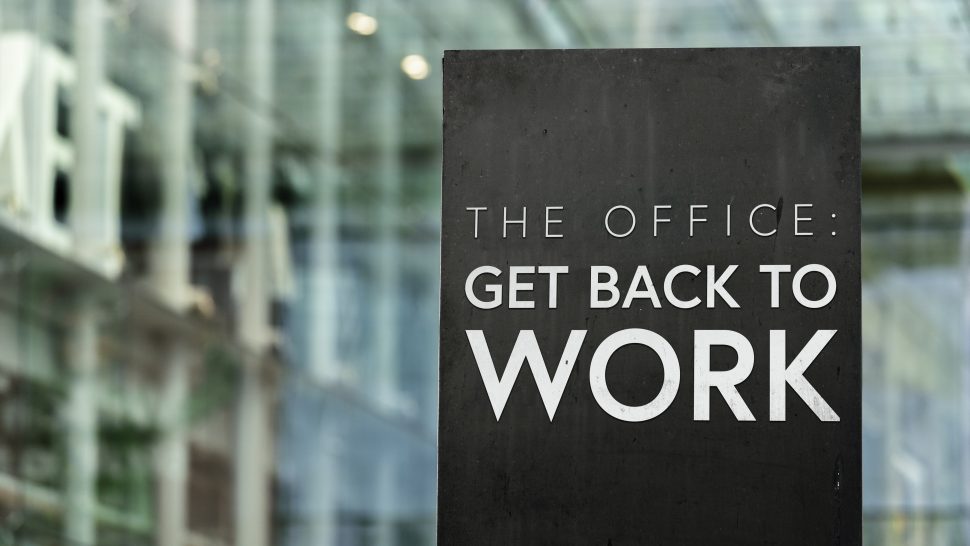
Back To Work! (in-person)
Read moreMajor companies say productivity and creativity are suffering from remote work and are now ordering workers back to the office or face firing. In this Tough Things First podcast, Ray Zinn explores the pluses and minuses of remote work and why this back-to-the-office trend is a needed correction.
Rob Artigo: I’m Rob Artigo, your guest host for this edition of the Tough Things First podcast, where I get a chance to talk with Ray Zinn, as noted, the longest serving CEO in Silicon Valley. And that’s for good reason. He’s an expert, a CEO, a professional and inventor, you name it. Hi Ray, it’s great to be back.
Ray Zinn: Good to be with you again, Rob. Thanks.
Rob Artigo: Well, researchers at Stanford University reported a survey just about last month about working from home and what people’s habits are right now. They said about 12% of full-time employees surveyed were fully remote, 12% of the American workforce, fully remote. 59% were full-time on site, and 29% were hybrid workers. So by my count, that means 41% of the workers in this country are remote or hybrid. Does that sound about right to you?
Ray Zinn: That’s about right.
- Jul122023
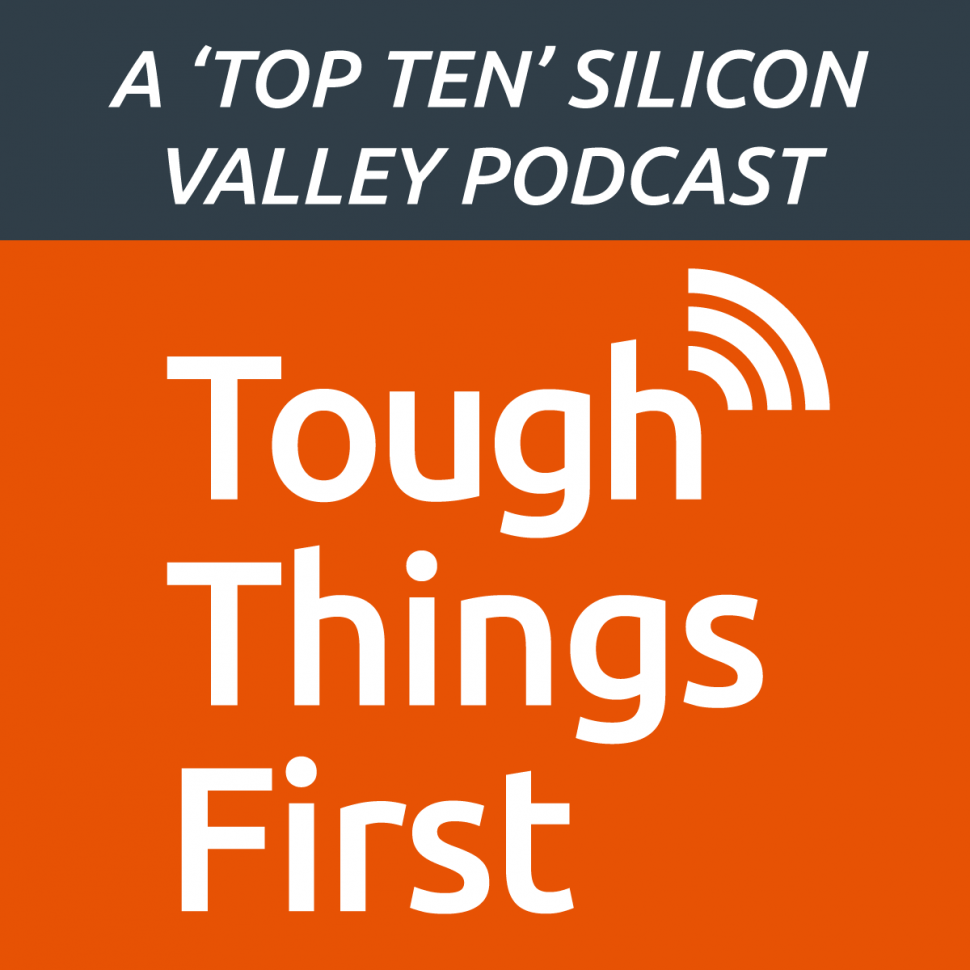
Chasing the Dream! A good way to lose everything.
Read moreYou have heard about “chasing the dream,” but is it a fool’s errand in the end? In this Tough Things First podcast, Ray Zinn explores the downside of something that sounds good on the surface, and suggests and alternative.
Rob Artigo: I’m Rob Artigo, your guest host for this edition of the Tough Things First podcast with Ray Zinn, the longest serving CEO in Silicon Valley. Hello again, Ray.
Ray Zinn: Hi Rob. Good to be with you today.
Rob Artigo: You have written that chasing a dream really means we are putting undue effort in pursuing something that is beyond our reach. Pursuing a dream is working diligently at something that is worthwhile and within the scope of our capabilities. So I think the word comparison there… As, again, you’re a writer, the word comparison there is the difference between chasing and pursuing, isn’t it?
Ray Zinn: Exactly. So when we chase something, it’s elusive. It’s something we can’t seem to get to. It’s out of our reach. Pursuing it is a active effort and trying to accomplish that which we want to do. So pursuing your dream as opposed to chasing your dream is what we’re talking about today.
- Jun282023

Words Matter
Read moreA person “with a way with words” can send another person wayward. Words matter, and in this Tough Things First podcast, Ray Zinn talks about how what we say can bring a person to a new level of success or grind them into oblivion. It’s your choice.
Rob Artigo: I’m Rob Artigo, your guest host for this edition of the Tough Things First podcast. I’m a writer and investigator in California. Here with me is Ray Zinn, the longest-serving CEO in Silicon Valley history. Hello again, Ray.
Ray Zinn: Hi, hi, hi. How you doing there, Rob?
Rob Artigo: Well, Ray, you are known for your books, but you also just do a lot of writing in general. And for example, your musings are interesting always to me. And recently, you offered the advice, “If you have a way with words, you should make sure they’re wholesome and uplifting; otherwise, just keep your mouth shut.” And I think it’s good advice, but that’s what your musings are often about. So let’s dig a little deeper into that. Give us an idea of what you mean when you say the words need to be wholesome and uplifting.
- Jun142023

Rethinking the Debate of Artificial Intelligence
Read moreDepending on who you ask, Ai is the scariest technology in the world or the 8th Wonder. But are some of the best human minds missing the mark? In this Tough Things First podcast, Ray Zinn turns the debate on its head. (Clear here for the Video Podcast)
Rob Artigo: Welcome to the Tough Things First podcast, your indispensable source for business, leadership, and life advice with the longest serving CEO in Silicon Valley. I’m your guest host, Rob Artigo. And he’s Ray Zinn. Good morning, Ray.
Ray Zinn: Hi, Rob. How’s it going down there?
Rob Artigo: Good. Good. We’re out here in Sacramento. And you’re somewhere in a farm, a ranch somewhere?
Ray Zinn: Up in Montana.
Rob Artigo: Yeah. It’s great that we could be together. We have a subject coming up, eventually in a future podcast where we talk about people working from home and having to do… And people doing a lot of Zoom calls and things like that. And some people aren’t happy about it. That’s a topic for another day. Today, let’s talk about, really, I think, one of the number one subjects in the nation and virtually around the world, artificial intelligence.
- May312023
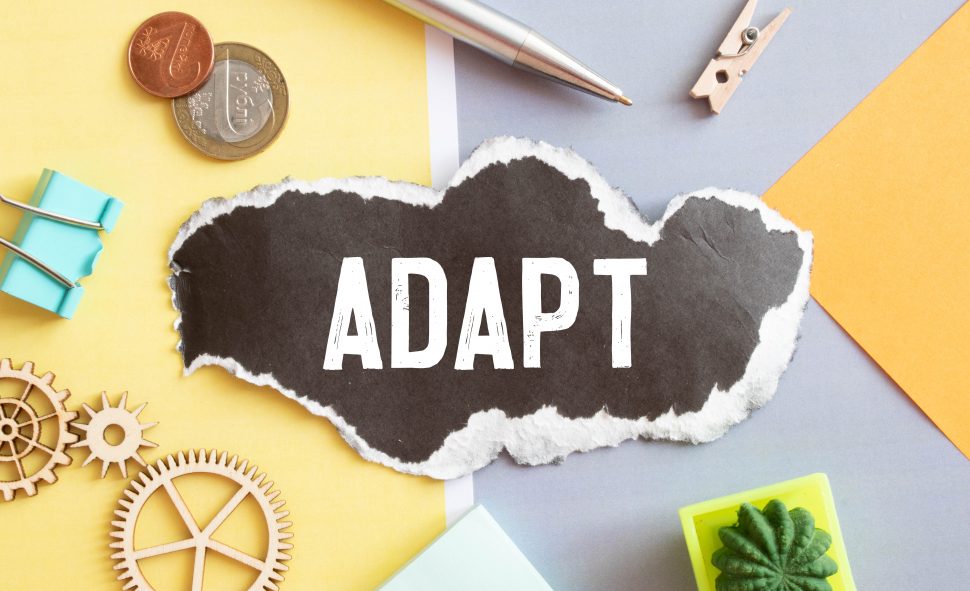
Adaptability
Read moreA successful entrepreneur requires adaptability, to adjust to different conditions and or circumstances. In this Tough Things First podcast, Ray Zinn breaks down why adaptability is so essential and why your whole team needs to embrace a fluid approach to business.
Rob Artigo: Rob Artigo here, once again your host for this edition of the Tough Things First Podcast. I’m an entrepreneur in California. It’s wonderful to be with you again, Ray.
Ray Zinn: Yeah, I’m glad you’re able to do this podcast with me.
Rob Artigo: Wealth of knowledge that I get. I thought today, let’s talk about adaptability, and this is really the ability to see what’s coming or to react properly upon outside stimuli. So being adaptable is important as your role as a leader. So Ray, what is adaptability in your mind and where does it apply in our business and personal worlds?
Ray Zinn: Well, it’s called pivoting.
- May172023

The nature of indecisive leadership and its effect on a company.
Read moreA job title doesn’t make the leader. In this edition of the Tough Things First podcast, Ray Zinn explores the idea of indecisive leadership and he is hardly indecisive on the matter.
Rob Artigo: I’m Rob Artigo, your guest host for this edition of the Tough Things First podcast where I get a chance to talk with Ray Zinn, as noted, the longest serving CEO in Silicon Valley. And that’s for good reason. He has life experience, he has work experience, and obviously success at the helm of a company for more than three decades. It’s just amazing. So, hi Ray, it’s good to be back with you.
Ray Zinn: Thanks, Rob. Good to be with you this morning.
Rob Artigo: Well, Ray, we’ve all been around and worked for or worked with leaders who from time to time have shown an inability to make a solid decision when the stakes are highest, and obviously that can not bode well for a company. So what’s the nature of indecisive leadership in your mind?
- May032023

Be more than just about profit, and profit follows.
Read moreFictional Wall Street tycoon Gordon Gekko famously uttered the words, “greed is good.” But, for real life CEOs with hundreds, sometimes, tens of thousands of employees, should there be something more than profit? In this Tough Things First podcast, CEO Ray Zinn, says greed doesn’t make profit, good employees who love their work do.
Rob Artigo: I’m Rob Artigo, your guest host for this edition of The Tough Things First podcast with Ray Zinn, the longest serving CEO in Silicon Valley history. Hello, Ray.
Ray Zinn: Hello there, Rob. Good to be with you again.
Rob Artigo: Well, Ray, you have said, and you’ve written a lot, and you’re musing zen. The Zen of Zinn is also a great example of this, but jotting down thoughts and expanding on an idea that helps all of us when we’re leading our companies to profitability and success…
- Apr192023

Bank Failures Start with Human Failures
Read moreSilicon Valley Bank was not the only bank to fail in early 2023, but it shines as an example of mismanaging risk at enormous expense to depositors. In this Tough Things First podcast, Ray Zinn discusses the man made ingredients that have caused a banking crisis. (Click here for the Video Podcast.)
Rob Artigo: Welcome to the Tough Things First podcast, your indispensable source for business, leadership and life advice with the longest serving CEO in Silicon Valley. I’m your guest host, Rob Artigo, and he’s Ray Zinn. Hello again, Ray.
Ray Zinn: Hi, Rob. So good to be with you this morning.
Rob Artigo: Good to be back, Ray, and this is an interesting subject. I should let the listeners know that this is a video edition as well. So if you’re just listening to the podcast but you’d like to watch it, you can just click the link next to … you can go to toughthingsfirst.com and find the podcast, click the link that says video podcast and it’ll take you to Ray’s YouTube channel where we have the video posted, and you can watch it on video. I think it enhances what we do, and we don’t do it all the time, but we try to do it semi-regularly, and it’s fun to be on the same screen with you, Ray, and make videos.
Ray Zinn: Yep.
Rob Artigo: Well, today’s topic is something that’s been in the news a lot lately. I think people will understand this as being an important issue. I mean, people are always concerned about bank failures, and we had a big one. We had the largest … I think it’s gone down as the largest in history, the Silicon Valley Bank collapse.
- Apr052023

“Crap Happens”
Read more“The Failure of Silicon Valley Bank (SVB) was a prime example of people and organizations who seek to place blame instead of learning from the experience.” In this Tough Things First podcast, Ray Zinn discusses how the successful business leader profits from knowing what to do when “crap happens.”
Rob Artigo: I’m Rob Artigo, your guest host for this edition of the Tough Things First podcast. I’m a writer and investigator in California. Here with me is Ray Zinn, the longest serving CEO in Silicon Valley history. Hello again, Ray.
Ray Zinn: Hi there, Rob. So good to be with you today.
Rob Artigo: I thought it might be a good idea to talk a little bit more about Silicon Valley Bank. Only in that you wrote, “The failure of Silicon Valley Bank was a prime example of people and organizations who seek to place blame instead of learning from the experience.” I thought, you know what? We talked about Silicon Valley Bank, but this is a great aspect of this because it’s not the issue about the failed banks, which includes Silicon Valley Bank and others. Credit Suisse comes to mind, but going forward, we’re going to learn more about what happened and we don’t really know much.
But tell me a little bit about what you mean about an organization where the culture basically is to place blame instead of learning from the experience. Let’s talk a little bit about that.
Ray Zinn: Well, that’s an interesting one. As I’ve mentioned in that musing, I said, “Crap happens”. The word that term crap comes from is John Crapper invented the toilet, and so it’s a play on his name as you would. It’s what we mean when we say crap happens.
- Mar222023
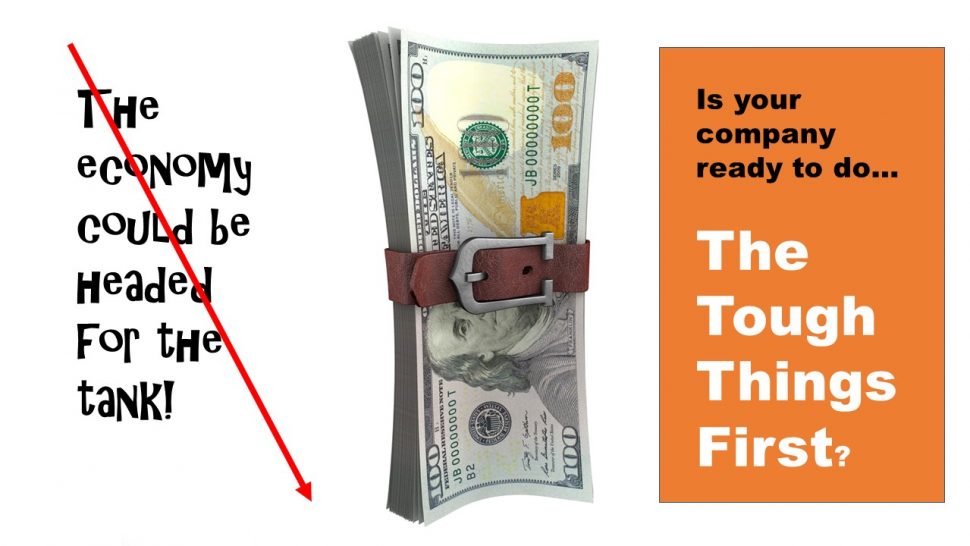
Belt Tightening in Recession
Read moreYou can’t control the world, but you can lead your company through a downturn. How? In this Tough Things First podcast, Ray Zinn explains, in simple terms, how to tighten the budget belt while saving your profits and people.
Rob Artigo: Rob Artigo here, once again, your host for this edition of the Tough Things First Podcast. I’m an entrepreneur in California. It’s wonderful to be back with you, Ray.
Ray Zinn: Well, I’m looking forward to this one very much, Rob.
Rob Artigo: Well, let’s talk about the fiscal belt and tightening it. Current circumstances in the economy and America around the world indicates that a lot of businesses are going to be interested in trying to figure out how to save money. I mean, we’ve already seen layoffs in 2023. And this is about how to cut expenses, how to also conserve cash in a downturn. So, you’re famous for decades of profitability at Micrel Semiconductor, and part of that was ensuring that you had operating capital in the bank to make sure that you could weather those storms for a period of time. So, let’s start with telling the listeners about having a strong foundation.
Ray Zinn: Well, the strongest foundation you can have, of course, is cash, because that’s what keeps the doors open.
- Mar152023
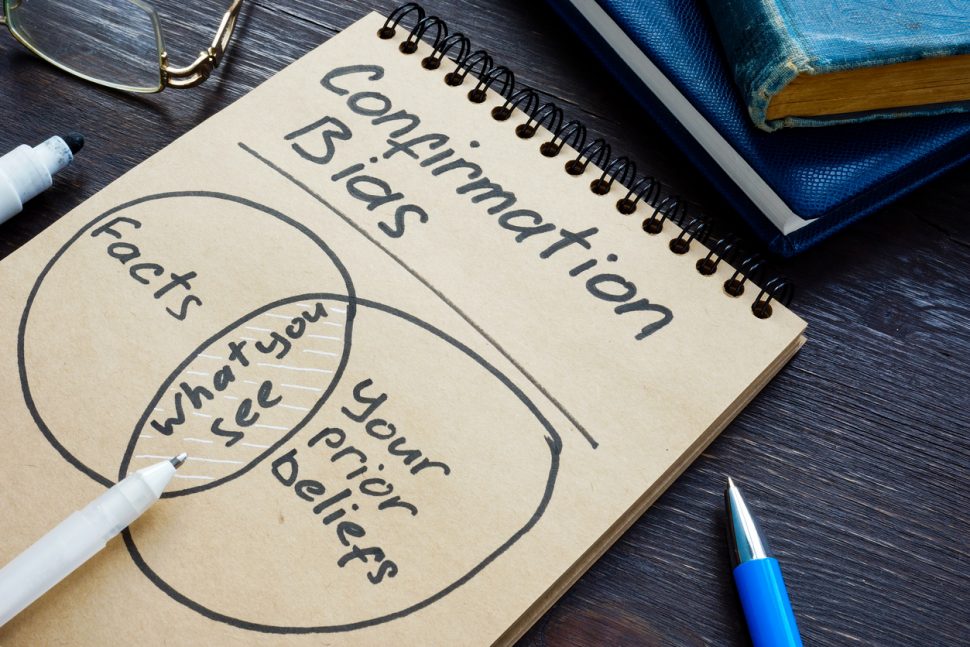
Confirmation Bias!
Read moreDo you want it to be true so badly that you sink the ship? In this Tough Things First podcast, Ray Zinn explores the truth behind one of techs greatest blind spots.
Rob Artigo: I’m Rob Artigo, your guest host for this edition of the Tough Things First podcast with Ray Zinn, the longest serving CEO in Silicon Valley. Hello, Ray.
Ray Zinn: Hi Rob. Boy, so nice to be with you again today.
Rob Artigo: Well, Ray, I’ve got a good subject here, because it’s one of those buzzword types of subjects. Because we always have buzzwords these days, and confirmation bias is one that has come up in conversation in the business world for me frequently, recently. The definition that I found for confirmation bias is the tendency to interpret new evidence as confirmation of one’s existing beliefs or theories.
So in my mind, that means that it’s when you grasp onto those elements that prove your original idea and discount those things that disprove, like surrounding yourself with people who say, “Yeah, that’s good, that’s good, that’s good,” and they’re not really being honest about it. But you get a lot out of it because you’re like, “Hey, this is great,” but it’s not necessarily true. Have you seen this kind of thing occur in the creative environment of research and development?
Ray Zinn: Absolutely. This is kind of the NIH concept, not invented here. You always think that your idea is the best idea, or when you first get the first evidence you have that something is been true that you found to be true, then you don’t look outside of it. It’s kind of like that flat Earth theory.
- Mar012023
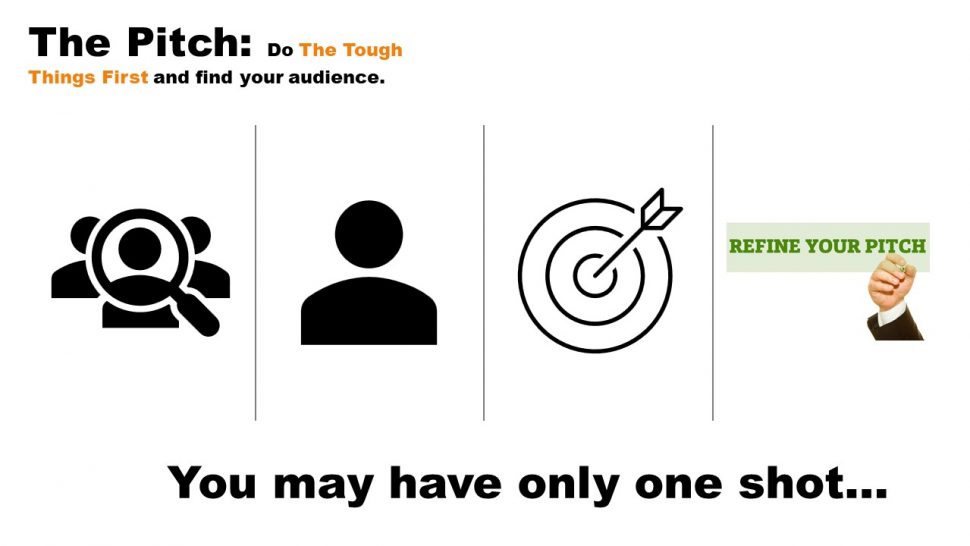
The Pitch: Audience
Read moreNo matter how dialed-in, intriguing, and dynamic, your startup pitch is, if you try to sell hamburgers to an aardvark, you’re just wasting the aardvarks time. In this Tough Things First podcast, Ray Zinn talks about why choosing your audience carefully earns respect and results in success.
Rob Artigo: I’m Rob Artigo, your guest host for this edition of the Tough Things First Podcast where I get a chance to talk with Ray Zinn, as noted there, the longest serving CEO in Silicon Valley, and that’s for a good reason. Hi Ray, it’s good to be back with you.
Ray Zinn: Hey Rob, so good to be with you again.
- Feb152023

Working hard or Work-a-holic? There’s a costly difference.
Read moreIs it easy to fall into the work-a-holic trap. Did you know that working 80 hours a week does not equal more productivity? Ray Zinn explains why in this new Tough Things First podcast.
Rob Artigo: I’m Rob Artigo, your guest host for this edition of the Tough Things First Podcast. I’m a writer and investigator in California. Here with me is Ray Zinn, the longest serving CEO in Silicon Valley history. Hello, Ray.
Ray Zinn: Hey Rob, it’s great to be with you today.
Rob Artigo: Well, in the 37 years that you were CEO of Micrel Semiconductor, you were known for being a hard worker but not known as a workaholic. Give us an idea of the difference between, in your mind, what it is to be a hard worker versus being a workaholic?
Ray Zinn: Okay, so working hard, which is a hard worker they kind of go together. Working hard and hardworking are the same. They just switched the adjectives around. A workaholic is just like an alcoholic. It’s something that takes over, that you can’t do without. In other words, you can’t survive without working. There’s a big difference between working hard, or hardworking, and not being able to do something else other than work, like an alcoholic.
- Feb012023

Quiet Quitting: How to reverse it in the age of remote work.
Read moreQuiet quitting isn’t just a buzzword, it’s happening. In this Tough Things First podcast, Ray Zinn discussing this costly staffing dilemma and offers a simple solution. (Click here for the video podcast)
Rob Artigo: Welcome to the Tough Things First podcast, your indispensable source for business, leadership, and life advice with the longest serving CEO in Silicon Valley. I’m your guest host Rob Artigo, and he’s Ray Zinn. Hello Ray.
Ray Zinn: Hello there Rob. So good to be with you this morning.
Rob Artigo: It’s good to be with you and good to be back. This is a special edition of the Tough Things First podcast. So if you’re just listening, you can go to the website, toughthingsfirst.com and you can find the podcast and then you can click on the link that’ll take you to Ray’s YouTube channel and you can watch the video there if that’s what you prefer to do. Make sure you rate this podcast wherever you find your favorite podcasts and keep us going strong. So Ray, I was reading Business Insider on the internet and I saw a headline recently that touted quiet quitting is the natural sequel to the great resignation as workers still rethink their jobs three years into the pandemic. Now, when I read that I was thinking, I’m not sure it’s a sequel. I think it’s part and parcel to the same process. Am I wrong?
Ray Zinn: No, you’re correct. And what’s interesting is that the pandemic, which came on in 2020 actually precipitated this concept of the great resignation slash quiet quitting.
- Jan182023

Proof of Concept
Read moreIt is one of the toughest tasks for the successful entrepreneur. That’s why your proof of concept should get done first! In this Tough Things First podcast, Ray Zinn discusses “Proof of Concept” as structured experimentation. Ray makes it easier to understand than it sounds.
Rob Artigo: Rob Artigo here once again, your host for this edition of The Tough Things First podcast. I’m an entrepreneur in California. Great to be back here again, Ray, for another great podcast.
Ray Zinn: Well, good to be with you again, Rob. I’m grateful that you’re able to do these with me. See, Rob used to be a radio announcer, and so he’s been able to go in and really hone his skills in this area.
Rob Artigo: Well, and I’m glad I can put them to some use, helping you out here on Tough Things First. I’m a big fan of what you do and I always get a lot from your knowledge and experience. Let’s just jump right into it, Ray. Let’s talk about proof of concept as it relates to structured experimentation. Finding out what fails and what works, but using those results to learn and grow and optimize to make a product that actually works and is a profitable product.
Ray Zinn: In other words, you’ve proven it, it’s viable. I know on Shark Tank, they often ask you, “Well, what’s your revenues?” That’s almost the first question out of their mouth is, “Well, what kind of revenues do you have? What’s been the experience so far?”
- Dec282022

The Clock is Ticking: Does your pitch have a clear mission and strategy?
Read moreMission and strategy are not afterthoughts. Just seconds for your first impression. Minutes to sell the idea. Don’t blow it! In this Tough Things First podcast, Ray Zinn explores several key elements your elevator pitch must include or it’s most likely dead on arrival.
Rob Artigo: I’m Rob Artigo, your guest host for this edition of the Tough Things First podcast with Ray Zinn, the longest serving CEO in Silicon Valley. Hello again, Ray.
Ray Zinn: Hi, Rob. How’s it going today for you?
Rob Artigo: It’s going great.
Ray Zinn: Great.
Rob Artigo: There are a surprising number of people, Ray, who have gone into business, literally invested their own money, drawn from savings, borrowed money, sometimes mortgages on their house, a second mortgage on a house, to launch a business, and they haven’t spent much time at all thinking about defining their company’s mission and concept. So let’s talk about how to define a startup company’s mission and concept before we ever go out and try to get others excited about it. Would you say a mission and concept, they go hand in hand?
Ray Zinn: Okay, so the mission defines the purpose. That’s what the mission is, it’s the purpose of your company. The strategy is how you’re going to execute on that mission.
- Dec132022
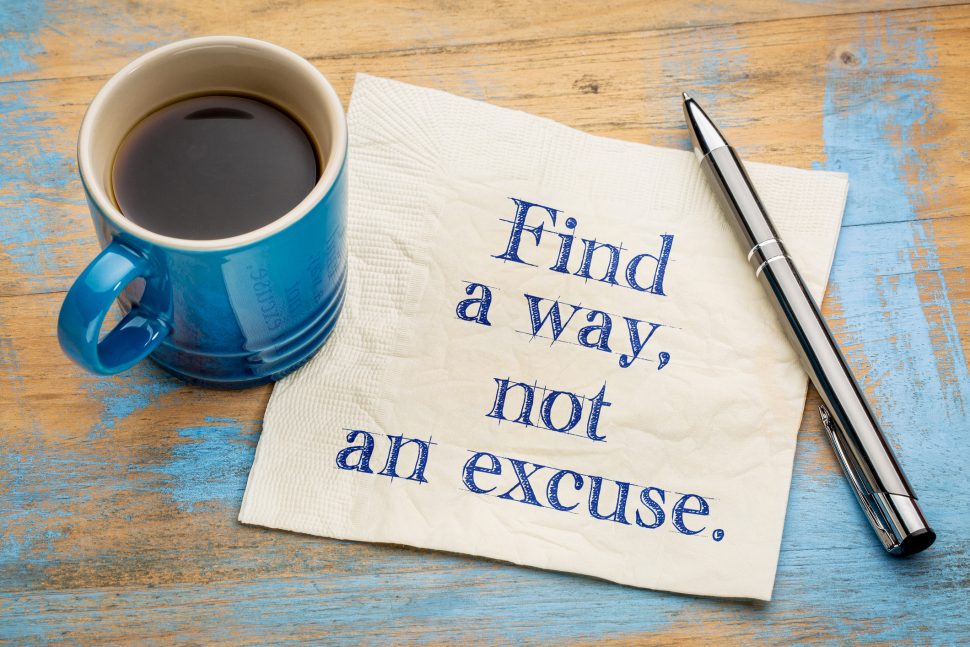
Ray Zinn: “An excuse is nothing more than a reason wrapped in a bag of poop.”
Read moreRay Zinn, the longer serving CEO in Silicon Valley, was well known for fostering a culture of “do whatever it takes, no excuses” at Micrel Semiconductor. In this Tough Things First podcast, Ray talks about why he views an excuse as nothing more than a reason wrapped in a bag of poop.
Rob Artigo: I’m Rob Artigo here once again, your host for this edition of The Tough Things First Podcast. I’m a writer and investigator in California. Here with me is Ray Zinn, the longest serving CEO in Silicon Valley history. Hello, Ray.
Ray Zinn: Hello, Rob. It’s so good to be with you again.
Rob Artigo: Well, in your 37 years as CEO of Micrel Semiconductor, you have heard just about everything. Certainly, you’ve heard your share of excuses. I imagine over time working for you, you would hear from individuals fewer and fewer excuses based on your philosophy here. But you once wrote that an excuse is a reason wrapped in a bag of poop.
Ray Zinn: I wrote that musing after one of my kids had offered an excuse on why something couldn’t be done.

